We asked 100 women how they feel about their body, weight and size. This is what they said.

Written by Stylist Team
One weekend in May, Stylist opened up a studio in Shoreditch to you, our readers, and asked you to lend your voices (and faces) to this vital conversation. Scores of you showed up to share how you felt about your bodies – it was a beautiful, empowering and frequently emotional day.
Trigger Warning: This article talks about eating disorders, weight loss and calories
“Secrets and shame are what the diet industry thrives on”
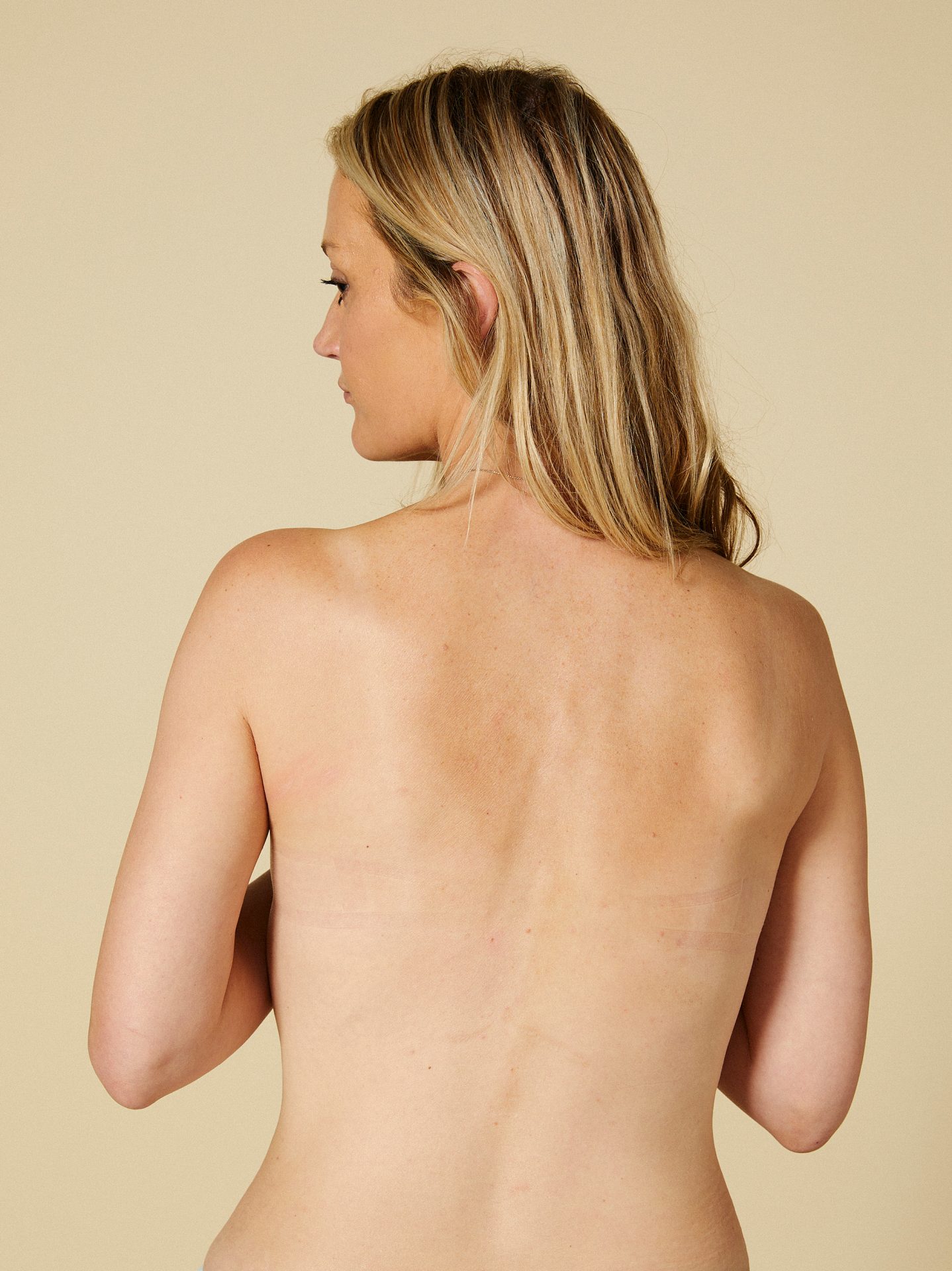
Alix Walker, 40, editor of Stylist magazine
“I thought about not eating on the morning of this photoshoot. An unhealthy instinct – a hangover of a difficult relationship with my body that started when I was just a schoolgirl – and a reminder that its negative grip is never far away.
Until a few weeks ago I wouldn’t have dreamt of sharing that. Those few words jar so completely with who I see myself as: a feminist who has built a career on trying to make women feel good, or at the very least not worse. It’s partly why I was so desperate to work at Stylist when it launched 13 years ago with a firm policy to never talk about diets or weight loss and to focus on women’s talents and achievements, not how they ‘maintained their figure’. It was bold. At the time diet coverlines sold magazines, bodies with ‘flaws’ were circled in red ink on front covers and the Spice Girls were weighed live on television. All of those things undoubtedly contributed to the pervasive and constant thoughts of weight, food and thinness that played in my mind like the loudest, most obnoxious heavy metal band throughout my teens and 20s. To work for somewhere that would fight against all that? Well it felt like we were starting a revolution.
Over a decade on and that toxic diet culture has, mercifully, diluted and today body positivity, self-love and wellness have taken centre-stage. Influencers show bodies we can recognise without shame, brands and the media are beginning to realise the importance of body representation (there is still a long way to go) and intuitive eating has replaced Atkins. In many ways it feels like we’re a generation healing.
That was until a certain reality TV star lost weight for the Met Ball and kickstarted a conversation we hadn’t had in our office for a very long time. A conversation about weight. We talked for hours, many of us offloading things we hadn’t shared in years. Those who crash dieted before a holiday or party. Those who had an internal debate before choosing
a salad or sandwich. Those whose desire to diet felt entirely at odds with their feminist principles and the image they portray to their friends and colleagues. Those who pondered the companies they could have launched if their thoughts weren’t consumed by their weight.
It felt important. Because while of course we want to not care about something as insignificant as the number on a set of scales, to embrace our body for its function not its flaws and feel as confident as the women we see on social media, is it realistic to think we could have escaped unscathed from the toxic culture of cabbage soup, heroin-chic and thigh gaps that we grew up with? And so we wondered: as we outwardly strive to perform self-love, have our real feelings about our bodies turned inwards? The most dangerous place to be.”
“I often think of my two daughters when I make the pages of the magazine you read today. The daughters who changed my relationship with my body so that – for the most part – I now live fairly comfortably in my own skin. Will they reach the final page feeling inspired and understood, or will they question why no one looks like them and start to pick at their body parts the way I did. That’s why body positivity and size representation matter. But
I also believe that real healing starts with open, kind conversations about how we truly feel. No judgment. No ‘shoulds’. After all, secrets and shame are what the diet industry has always thrived on. So, for the special June print issue of Stylist, we spoke to 100 women about how they really feel about their body in 2022.
The answers are incredibly honest and generous. Some women still navigate how they feel about their body every day, others are further on in their journey thanks to therapy, the body positivity movement and time. While there is no ‘solution’ to this topic, no way to tie it in a neat little bow, having this conversation was cathartic for everyone who shared in it and we hope it encourages you to listen – and maybe even challenge – your own thoughts and beliefs about what you see in the mirror.”
“I started dieting at the age of nine years old”
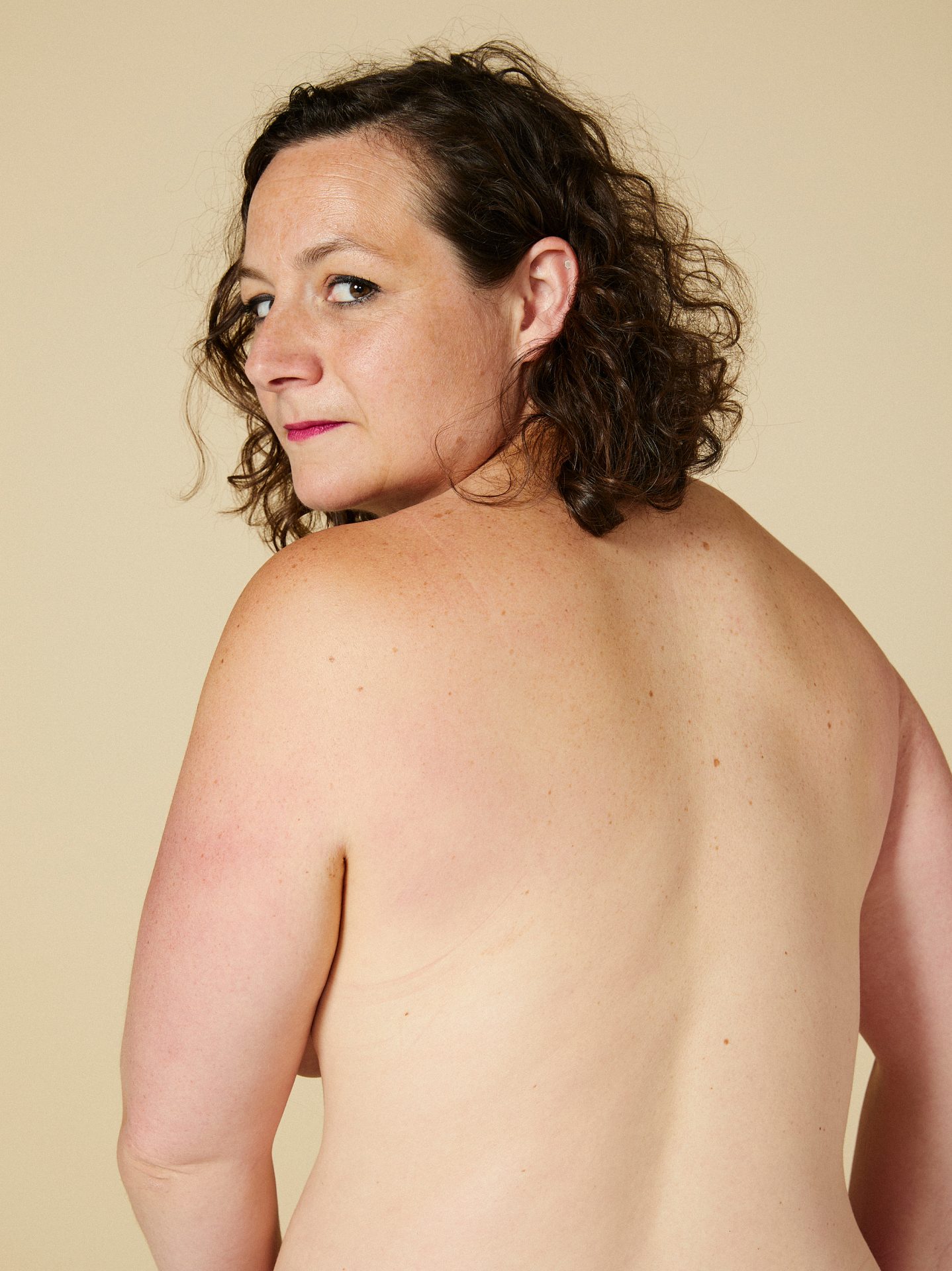
Jessica Fostekew, 38, comedian
“My dad’s only love language is food. During my childhood, every difficult emotion or conversation was dealt with by giving me food, and my only option was to receive it. Unfortunately, he was simultaneously obsessed with how much he hated fatness. So I grew up with this impossible dichotomy of being constantly fed beyond fullness, but not being allowed to physically show it.
So, from the age of nine, I started dieting. Grapefruits, Atkins, the lot. It wasn’t until I hit my 30s that I realised the cycle of restriction followed by inevitable failure and bingeing was, in itself, disordered eating. I just thought it was the way women were supposed to live; that we were doomed to say, ‘I’ll be happy when I’m thinner’ forever. But we’re not designed, bodily or psychologically, to stay hungry all the time, it’s just not sustainable. It’s a tough thing to unlearn and it will take more than one generation, but my god, it will be worth it.”
“When I feel bad about my body, I have bad sex”
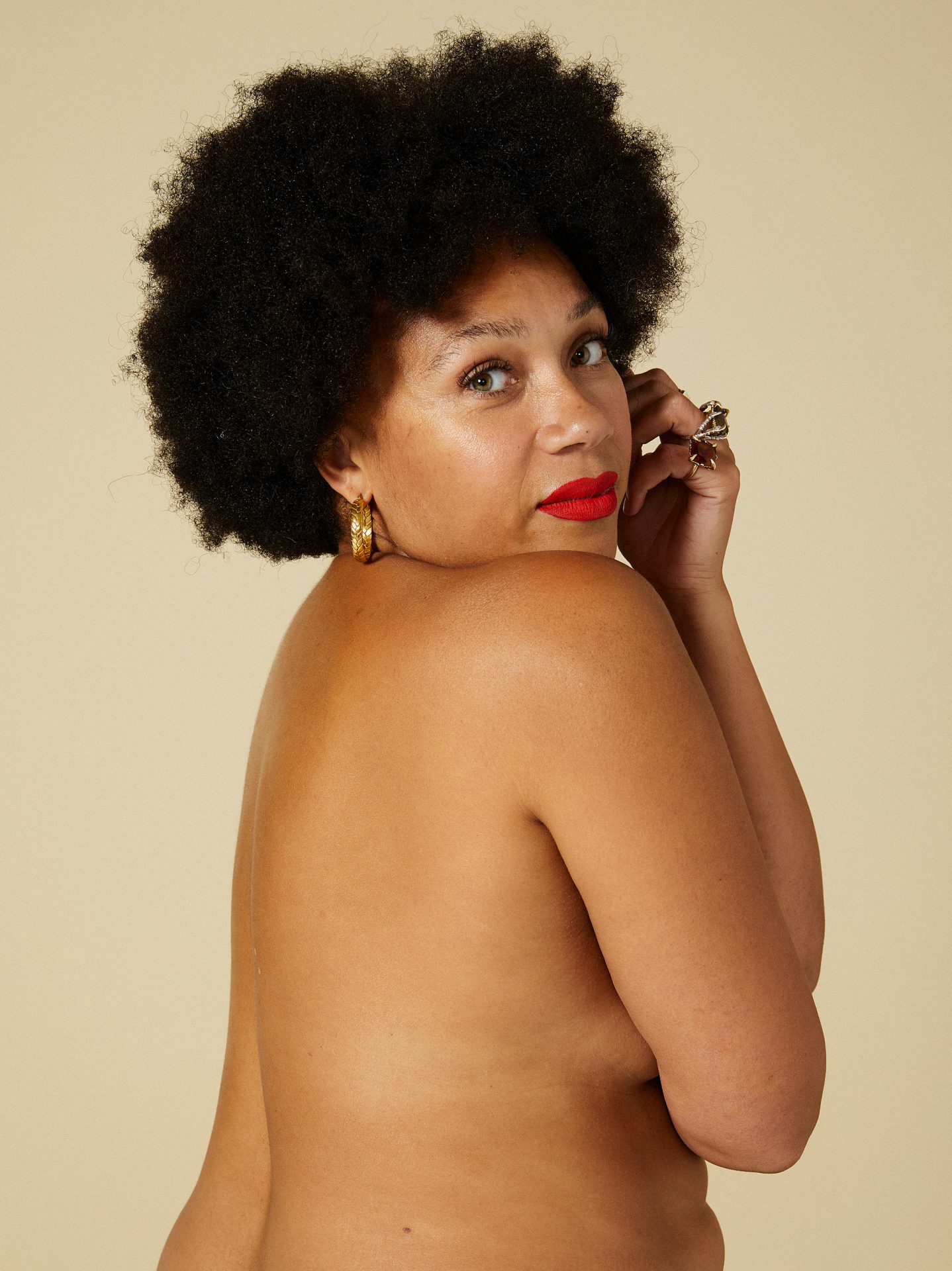
Natalie Lee, 41, content creator and author of Feeling Myself
“When I feel shit about my body, I have bad sex. I’m not able to be present because I’m too busy thinking, “Do my tits look saggy? Is this person looking at my rolls? How big does my bum look in this position?” and that means I’m less likely to have an orgasm. So for a while I thought the key to having better sex was to lose weight. But after I got divorced, I started exploring pansexuality and it changed everything. Having sex with women has been a freeing experience: I spend less time thinking about my cellulite or ‘performing’ an idea of sexiness that has long been shaped by the male gaze. It’s given me a newfound appreciation of womanly curves. Especially my own.”
“I starved myself in pursuit of a ‘bikini body’”
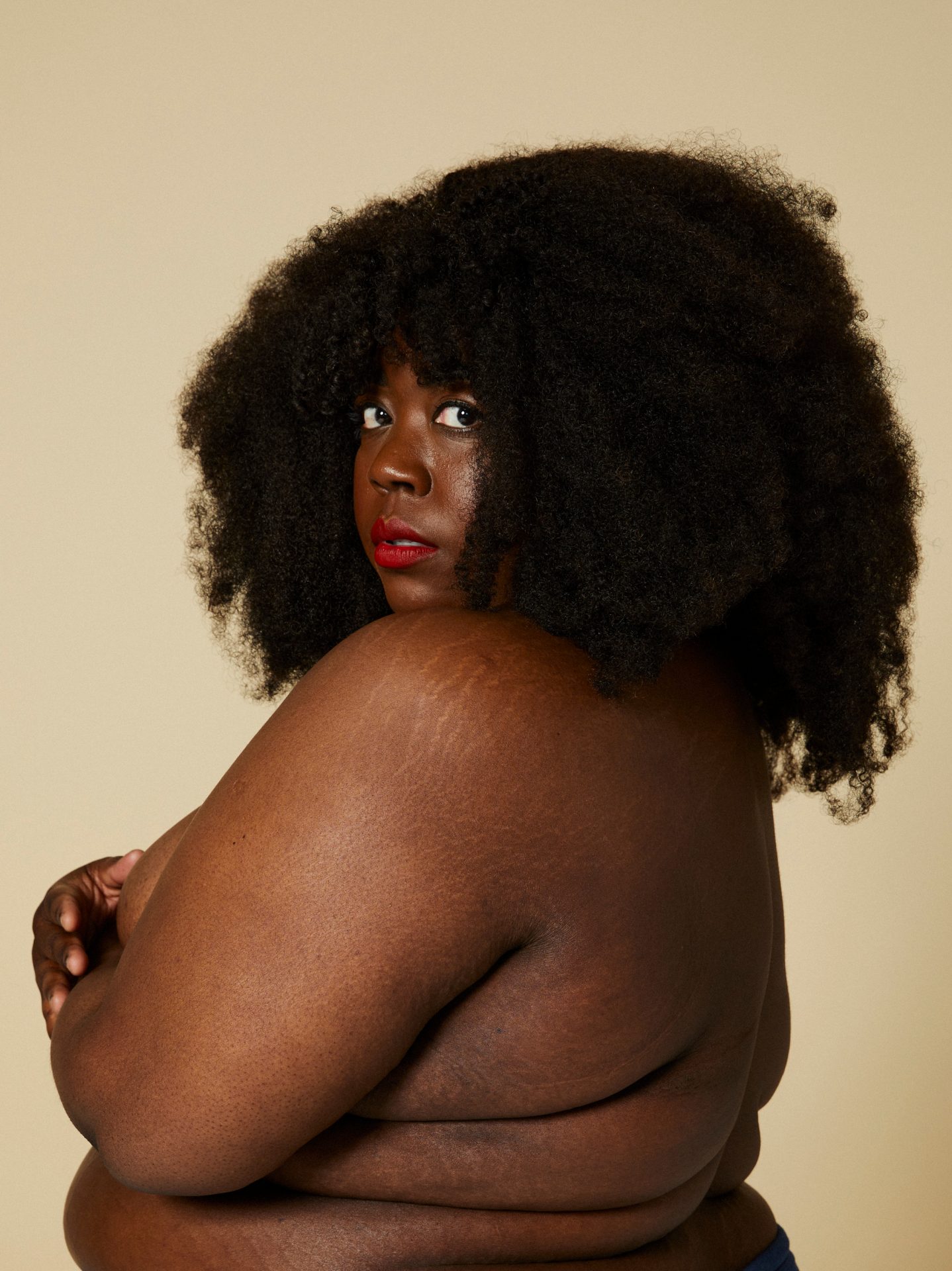
Stephanie Yeboah, 33, author, body image advocate and content creator
“Growing up, I was always chubby, but it wasn’t something I internalised until I started secondary school. On the first day, some boys started picking on me about my size and the colour of my skin. That bullying, mostly physical, continued for the next five years. It was horrific. When I finally plucked up the courage to tell my dad, he said, ‘Well, maybe if you weren’t so fat they wouldn’t do it.’ That cemented the idea it was my fault.
This was the start of a long period of self-loathing. I tried everything from intense workouts to extreme diets. Looking back, I had an eating disorder, but at the time the narrative was only thin people could have those. I was just doing what I was meant to do: lose weight. The pivotal moment was a trip to Barcelona when I was 23. I wanted to wear a bikini for the first time, so I challenged myself to lose four stone in four months. And I did it, in the most terrible ways: starvation; medication off the internet; appetite suppressants… The day I put on my bikini and walked out onto the beach, not a single person looked at me. I thought everybody would say “wow” – and that’s when it clicked. No one else cared, and here I was feeling the worst I’d ever felt. I was depressed, I had health issues. I would never treat myself that way again.
Working in social media helped me repair my relationship with my body. The first time I posted a full-length picture of myself I didn’t look at my notifications for three days, because I was so scared of the comments. But there was nothing but praise there. I was like, finally I’ve found my people. It’s not always perfect, but it’s been a game-changer for me.”
“The guilt of not being body positive poured fuel on my eating disorder”
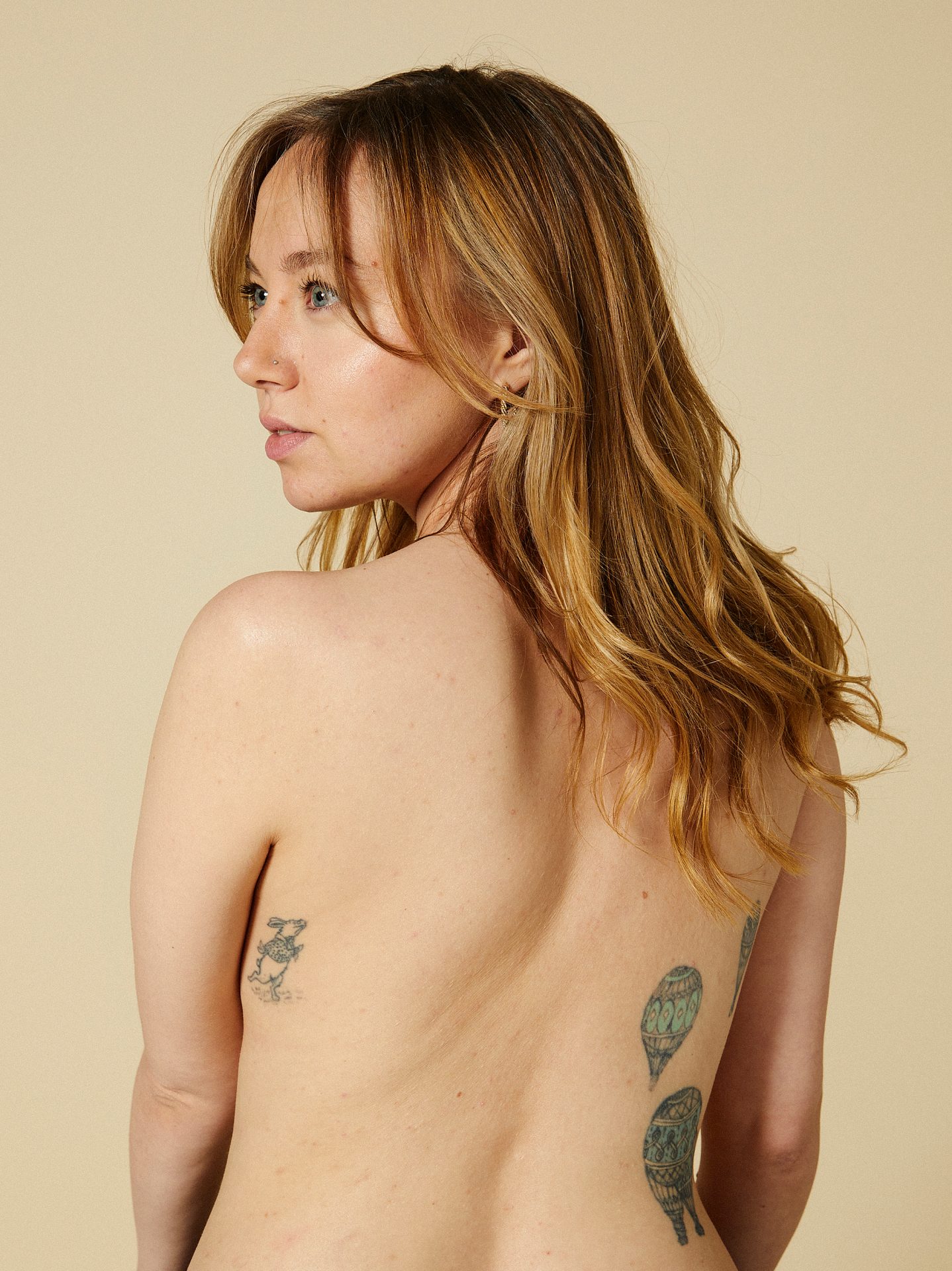
Alice Veitch, 28, tech founder
“Like so many people, when the pandemic hit my need for control skyrocketed. For me, that manifested in an eating disorder and exercise addiction. We were spending so much time online, where people only post their best angles, and I got into this headspace that everybody looked better than I did all the time. The closest I had to connection was participating in fitness challenges during my daily slot of exercise and seeing my friends’ names on leaderboards: I’d post pictures of myself on 5K runs and people would comment ‘you look amazing’ or ‘I’ve never seen you look so athletic’, which in my mind is code for thin. They obviously meant well, but what they didn’t know was that they were adding to the voice in my head that said smaller was better, that I should keep starving myself, keep making myself sick. (If there’s one thing I’ve learnt, it’s that we should just never comment on other people’s bodies.)
My heart rate got so low because of how underweight I was, but I just couldn’t stop running. I hadn’t had a period in seven months; my nails were breaking; my hair was thinning; I was exhausted. Eventually my doctor told me I was at serious risk of cardiac arrest if I kept exercising at that rate, so I was admitted to rehab. I told all my friends I was going on a work trip because I was so ashamed, and honestly I think that made my illness worse. I didn’t want them to think my judgment of my own body was in any way a reflection of how I felt about theirs, because to me they’re all fabulous. I thought, ‘Why aren’t I body positive? Why aren’t I grateful for my body the way the influencers I follow are?’ It was just another stick to beat myself with.
Now, post-rehab, I can say I’m in a far better place. The key thing for me is encouraging others to talk about eating disorders, because it’s become harder than ever to communicate what you’re going through, but it’s so important that you do. Ultimately, though, I dream about the day I can wake up and go to bed without thinking about weight at all. I just want to own a body and it be the least interesting thing about me.”
“The idea that thin is good and fat is bad is woven into the fabric of our society”
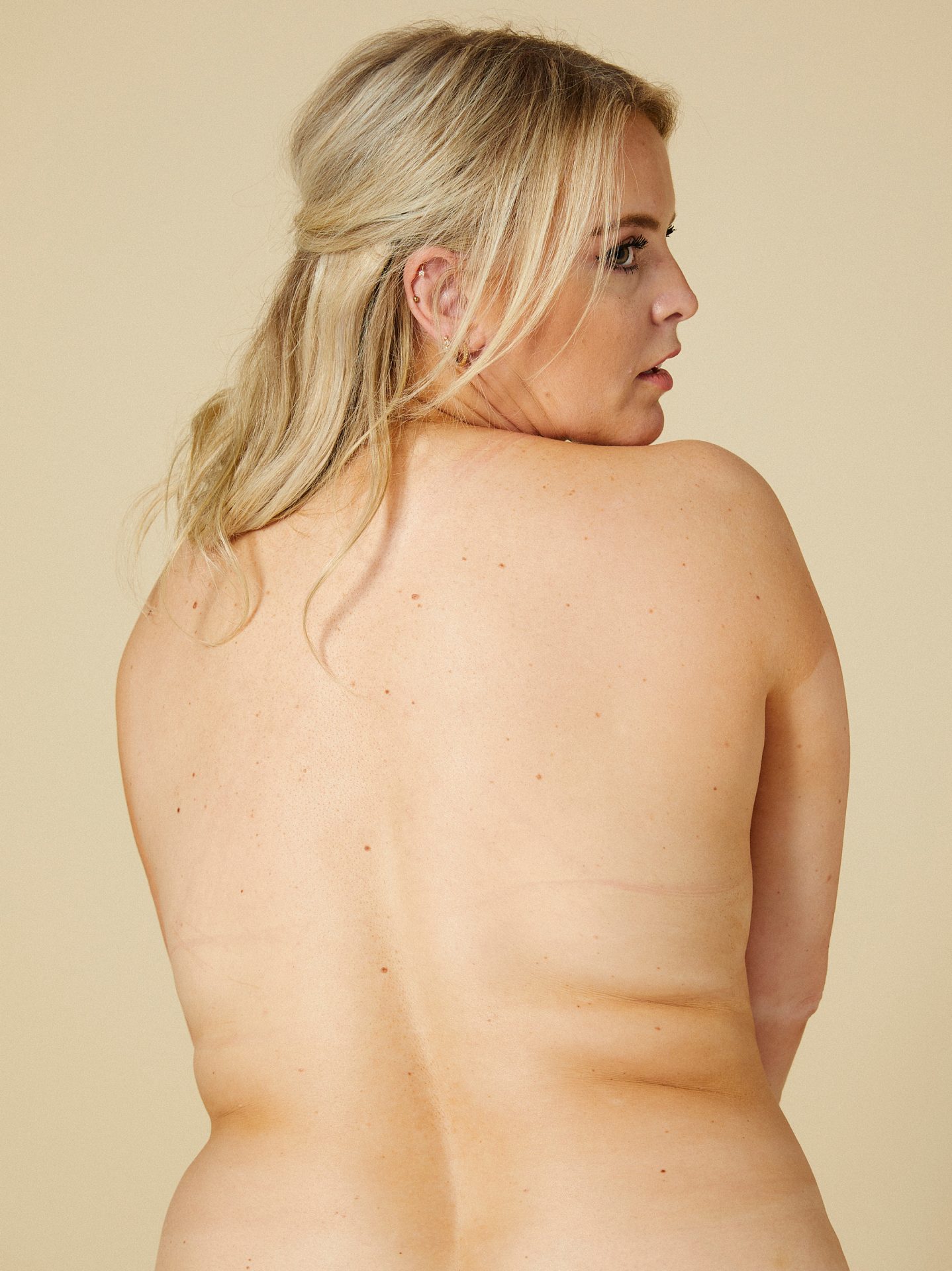
Alex Light, 33, body confidence activist and author of You Are Not A Before Picture
“I have an extensive history of disordered eating and eating disorders. Until recently, I despised my body and wanted to crawl out of my own skin. I have done a lot of work and had a lot of therapy – and I realise that is a privilege – and now I’m in a great place. It’s unrealistic to say I will never have any sort of negative feeling about my body, and I am at peace with that – the difference is that now I can acknowledge it without it sending me down a destructive path.
But no matter how much you shift your own mindset and work on yourself, the fact is we still live in a world where those values aren’t reflected back at us, where diet culture still reigns. It’s sneaky, because at the end of the day, it serves a billion-dollar industry. One that is very aware of the current market, about how we feel about dieting, so it’s cleverly repackaged: balance, wellness, self-care and even body positivity can all teeter on the line of crossing into diet culture. Ultimately, the idea that thin is good and fat is bad is woven into the fabric of our society.
For people who feel bad about their body, and are angry at themselves for feeling bad, it’s OK. It’s understandable, given the world that we’ve grown up in and live in. If you can, afford yourself compassion. Body image struggles aren’t a vanity issue, but the result of a lifetime of conditioning to hate ourselves, especially for women. It’s not your fault.”
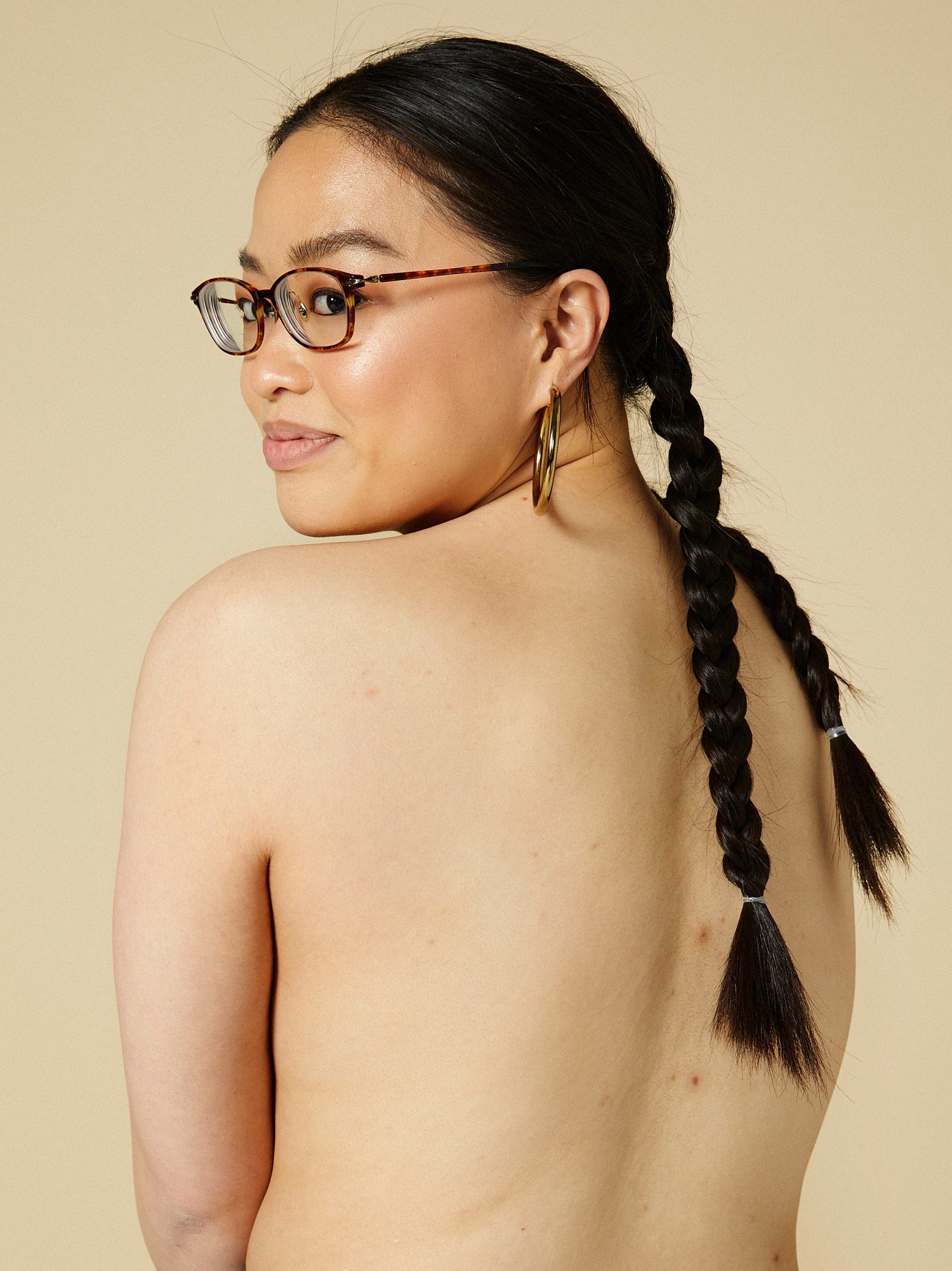
Ngoc Nguyen, 28, creator manager
“My family has never been shy about telling me I should lose weight, so in protest I’ve never stepped on a set of scales. But recently I dropped a couple of dress sizes and my parents’ reaction is hard to ignore. It’s like suddenly they’re proud of me, they’re posting me on Facebook, they want me to go to every family function. It’s mind-blowing.”
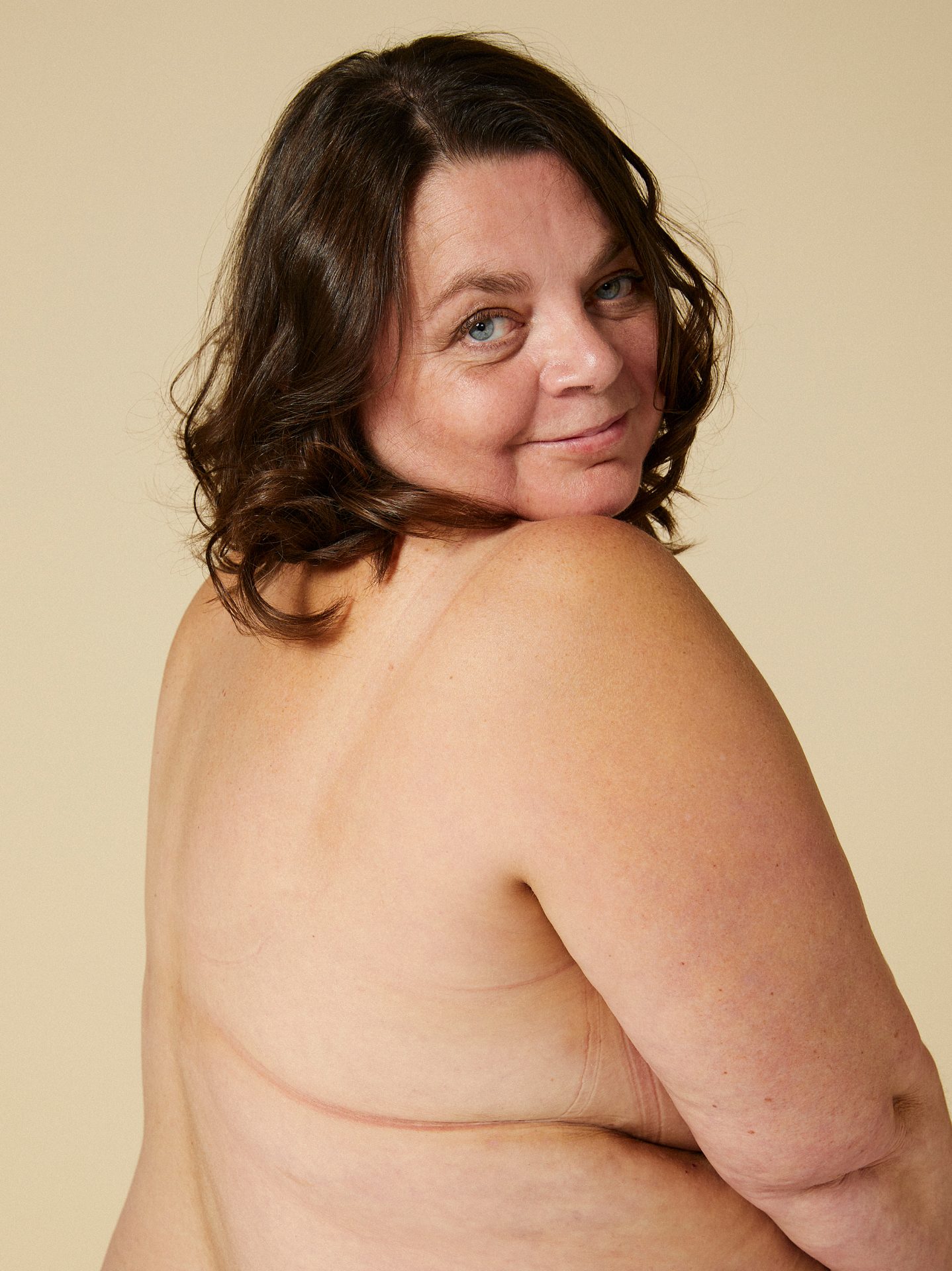
Victoria Dunthorne, 54, deli manager
“Dress sizes can really mess with you, especially when you’re being told that a size 14 is equal to an ‘extra large’. I’ve got a wardrobe full of outfits I’m ‘going to get into one day’, and yet regularly feel like I’ve got nothing to wear. My advice to women everywhere? Buy the dress that fits you now.”
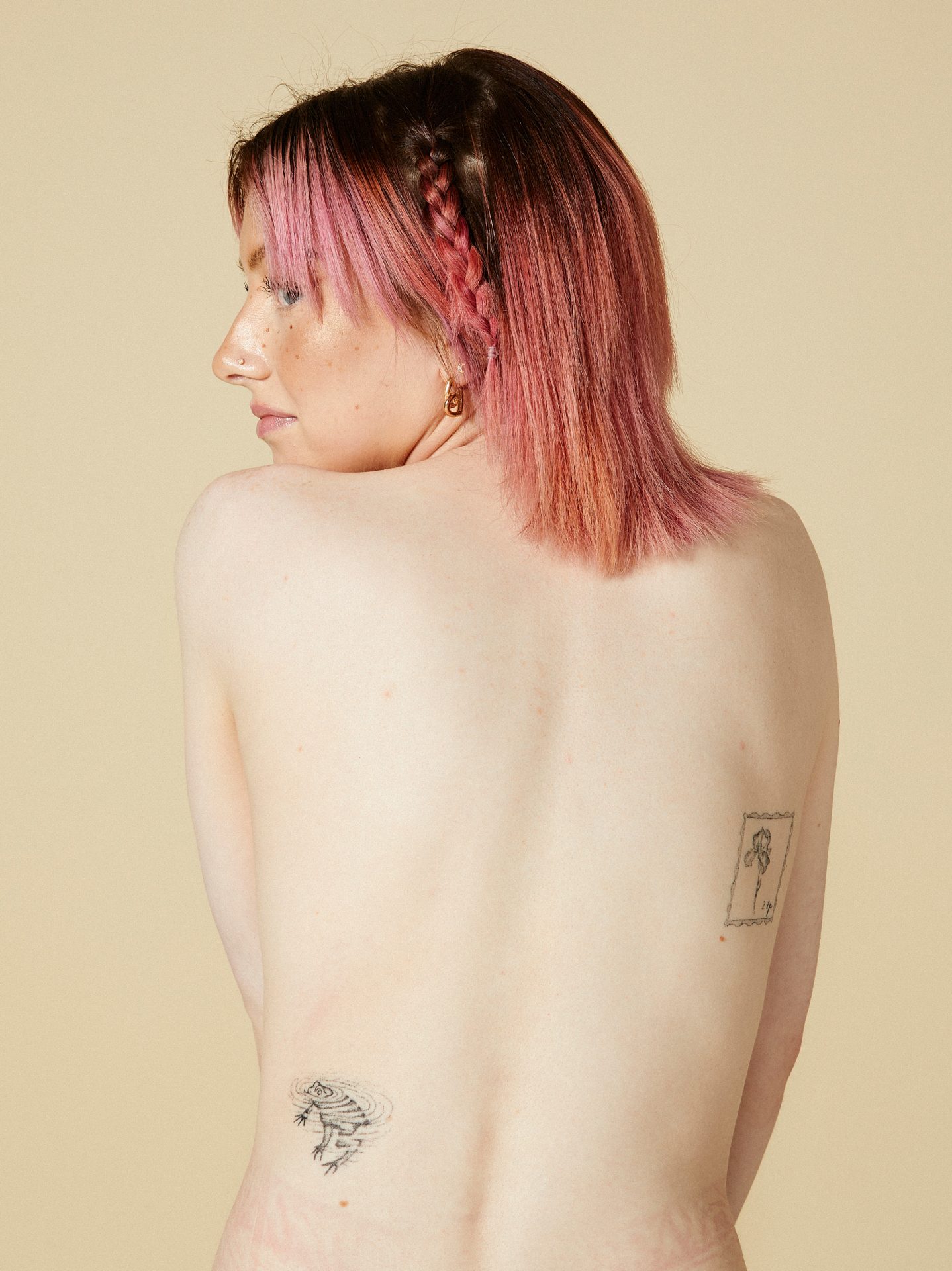
Emily Ware, 21, student
“I’m naturally very slim: I struggle to put on weight and find clothes that fit me well. It was hard growing up, when people like Kylie Jenner are held up as curvy ‘goals’. People don’t want to hear it though: they just tell me I’m lucky that I can eat whatever I want.”
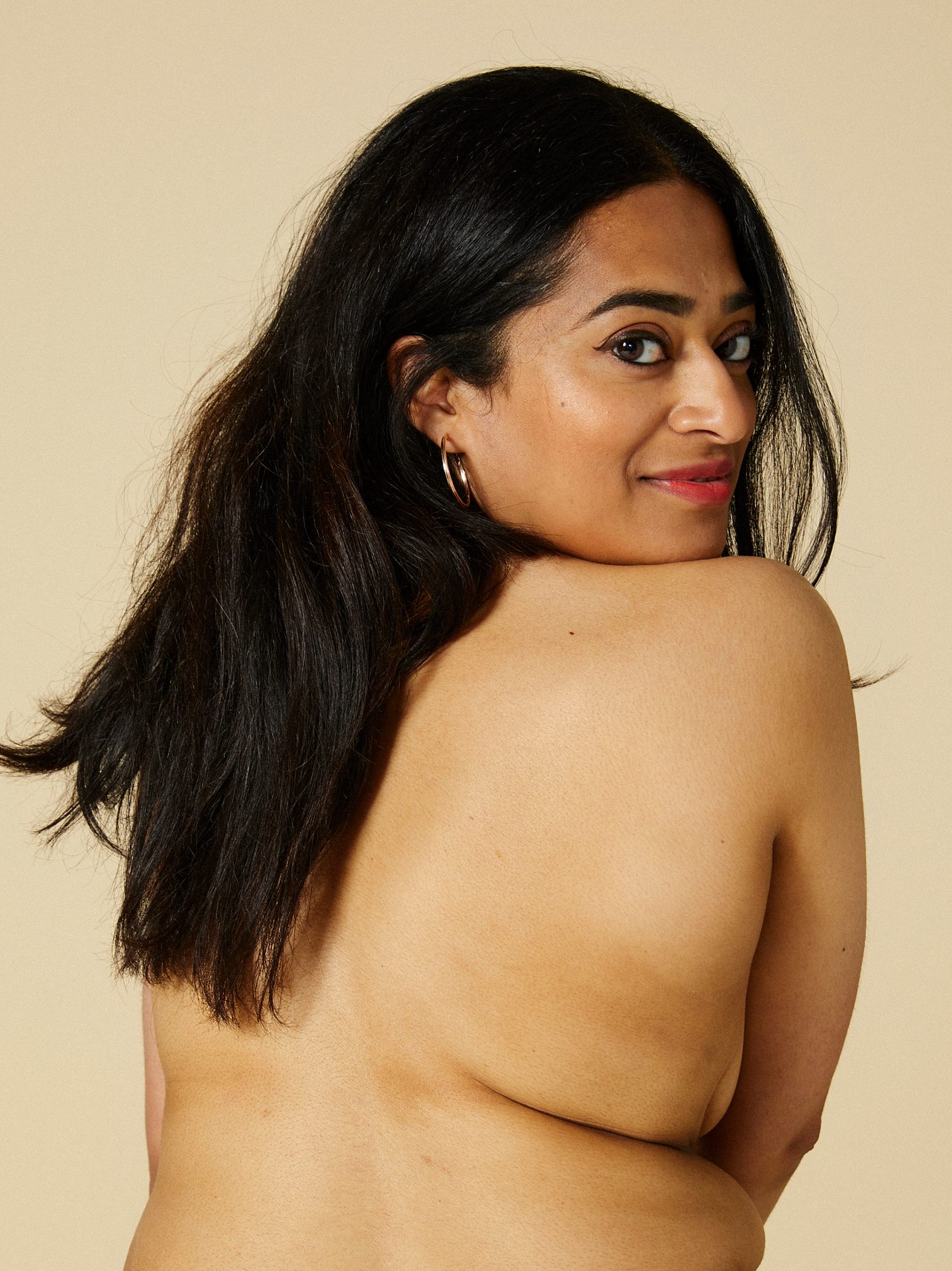
Krishna Makwana, 34, hospice worker
“I moved to London during the dating app boom, and the way men commented on my appearance gave me a real hatred of being photographed for a long time. Now I don’t have a single photo to remember the years of my life that I spent travelling. It’s heartbreaking.”
“For decades, my weight told a truth I didn’t want to admit”
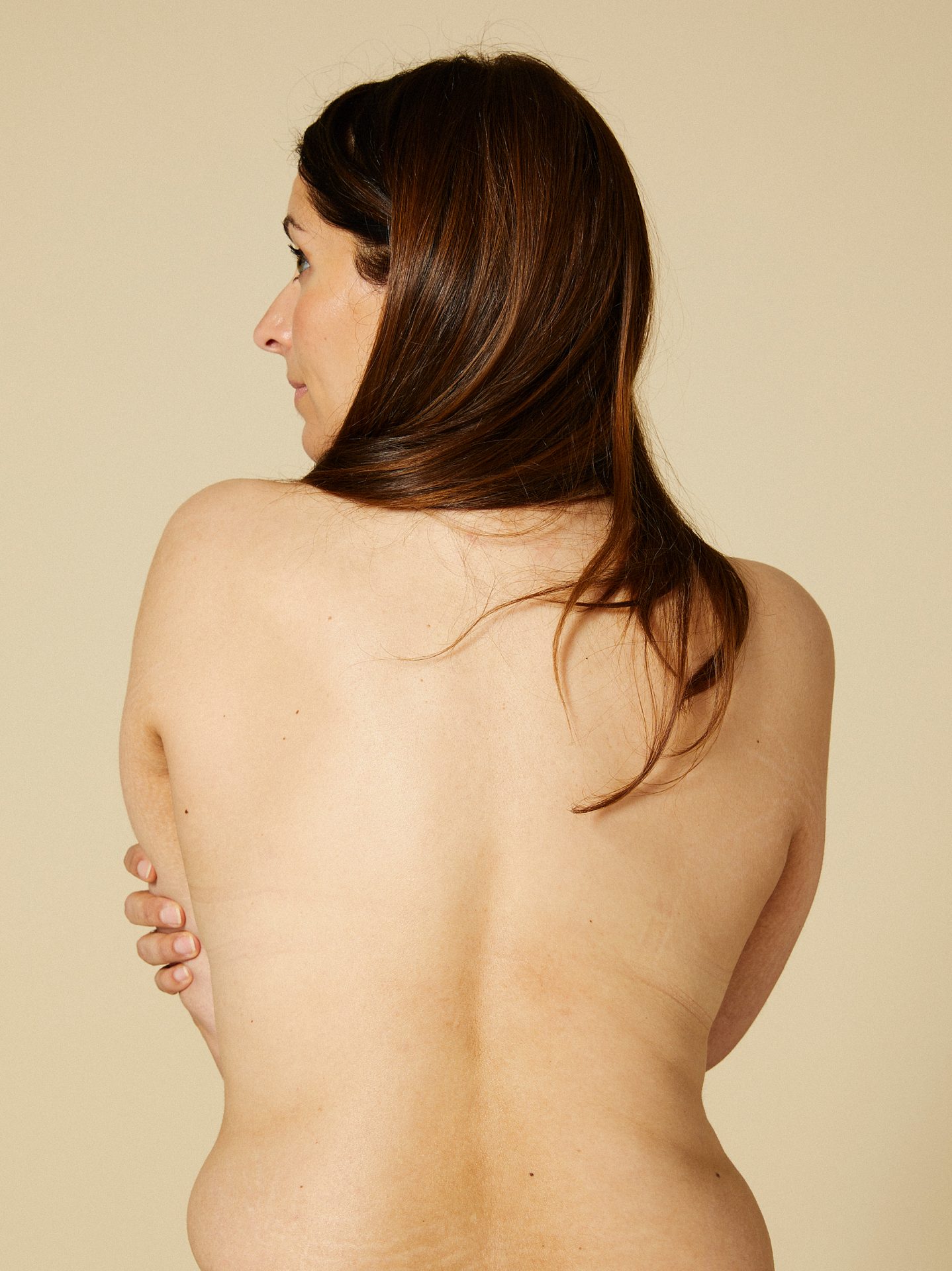
Emma Gunavardhana, 44, writer and podcaster
“Up until three years ago, I was struggling with a binge eating disorder. I wouldn’t eat in front of people, then I would go home and binge. A buffet would bring me out in a cold sweat. I was fearful of keeping too much in the house because I could never trust my own hunger instinct. And my weight told a truth that I didn’t want to admit – I self-harmed with food, and was punishing my body rather than appreciating it. I spent years in a cycle of weight loss and weight gain, assuming I was greedy and gluttonous, and it filled me with shame.
When, at 41, I found myself at my heaviest (again), I couldn’t face putting in all that effort to succeed knowing that I’d likely fail again, so I looked for a solution outside of diet and exercise. After so many years of feeling resentful and disconnected, it was tackling my emotional eating that changed my relationship with my body – now, I’ve learned how to support it without self-sabotaging.”
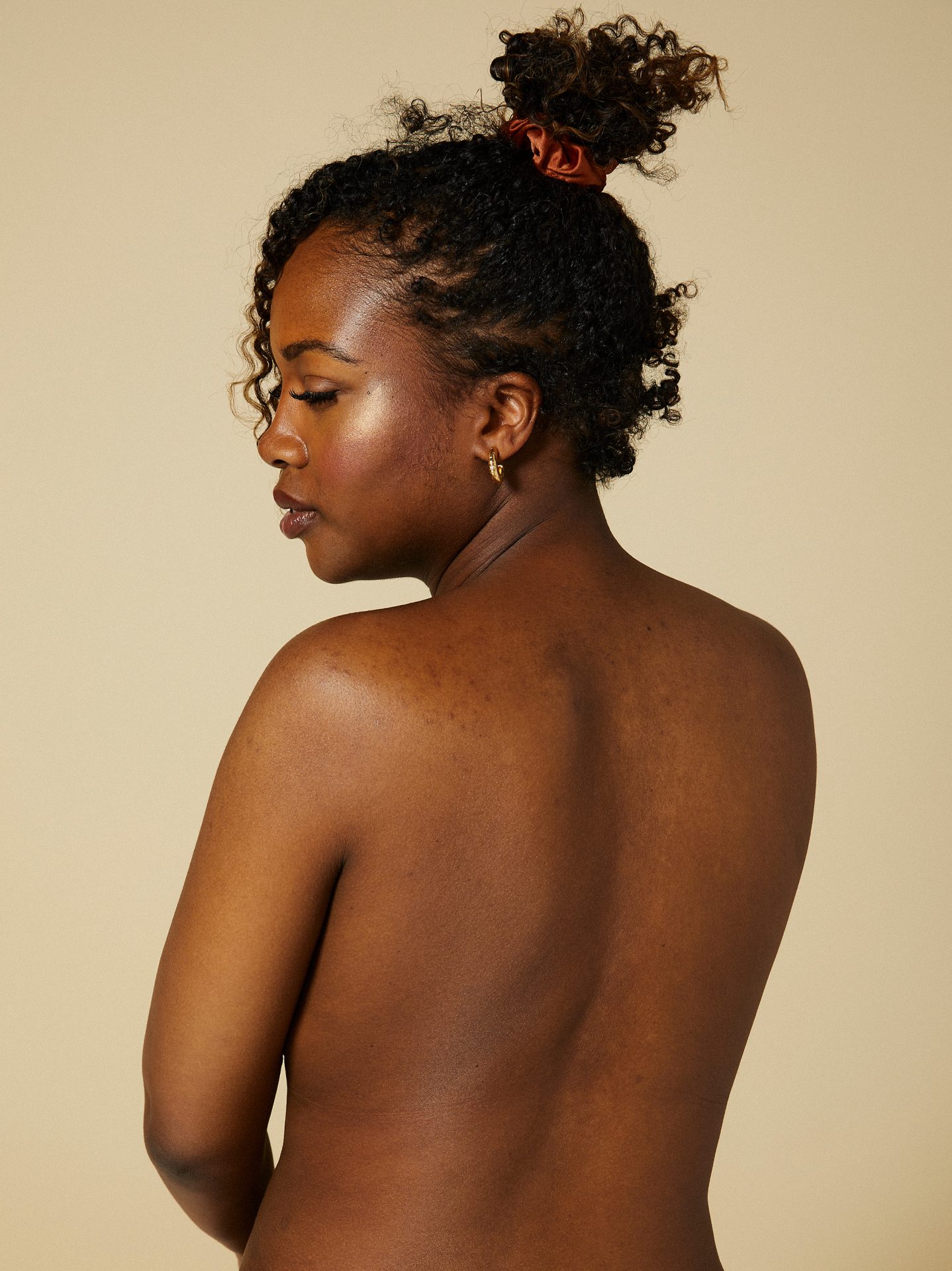
Lollie King, 27, writer and presenter
“I’ve had bouts of bad body dysmorphia. I was so fearful of gaining the ‘lockdown 10’ and then having to go back out into the world and have people notice a difference that, throughout the pandemic, I ran a 5K and did a HIIT workout every day.”
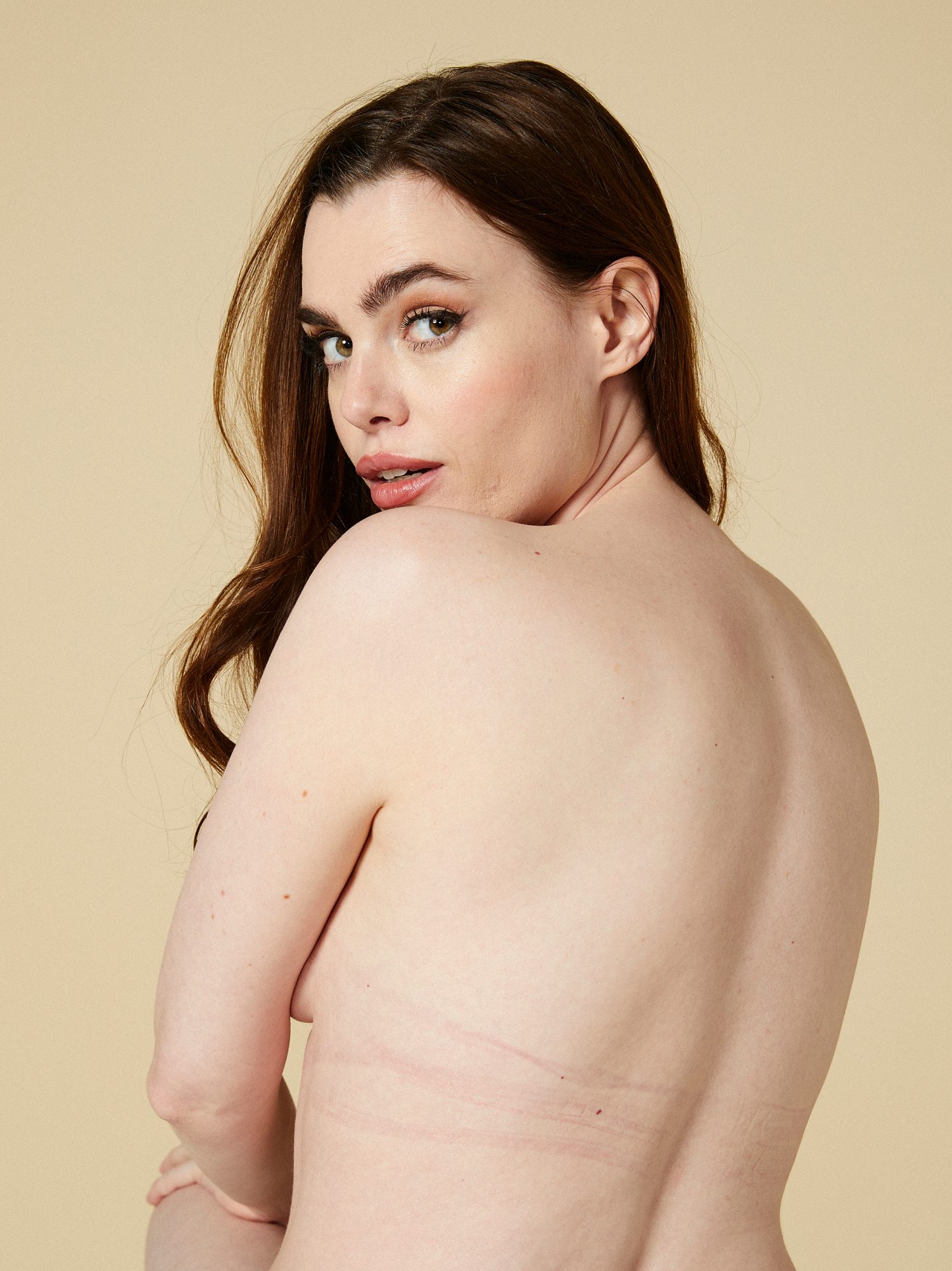
Charli Howard, 31, model, writer and beauty founder
“There’s often an assumption that because I’m a model, I’ve never had issues. I think people underestimate how many women feel bad about themselves, how many of us are insecure. But most of us have grown up in a world where we’re either too much or not enough.”
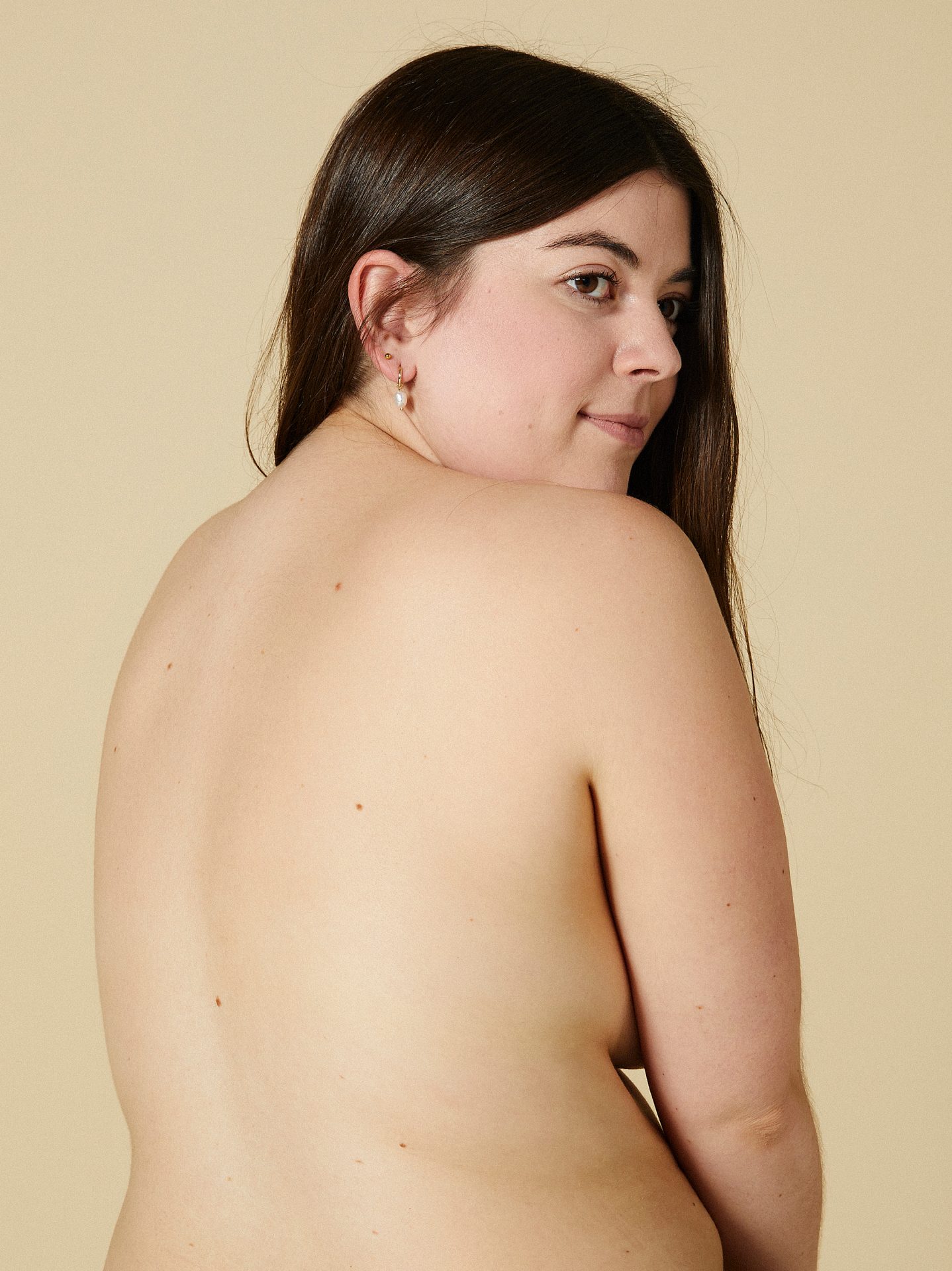
Laura Hueto Puig, 28, content editor
“In Spain, no one wanted a big bum – the women in my family would always complain about the size of theirs. Here, it gets me compliments. It’s a small thing, but it opened my eyes to the fact that there’s no right or wrong way to look, there are just different perspectives.”
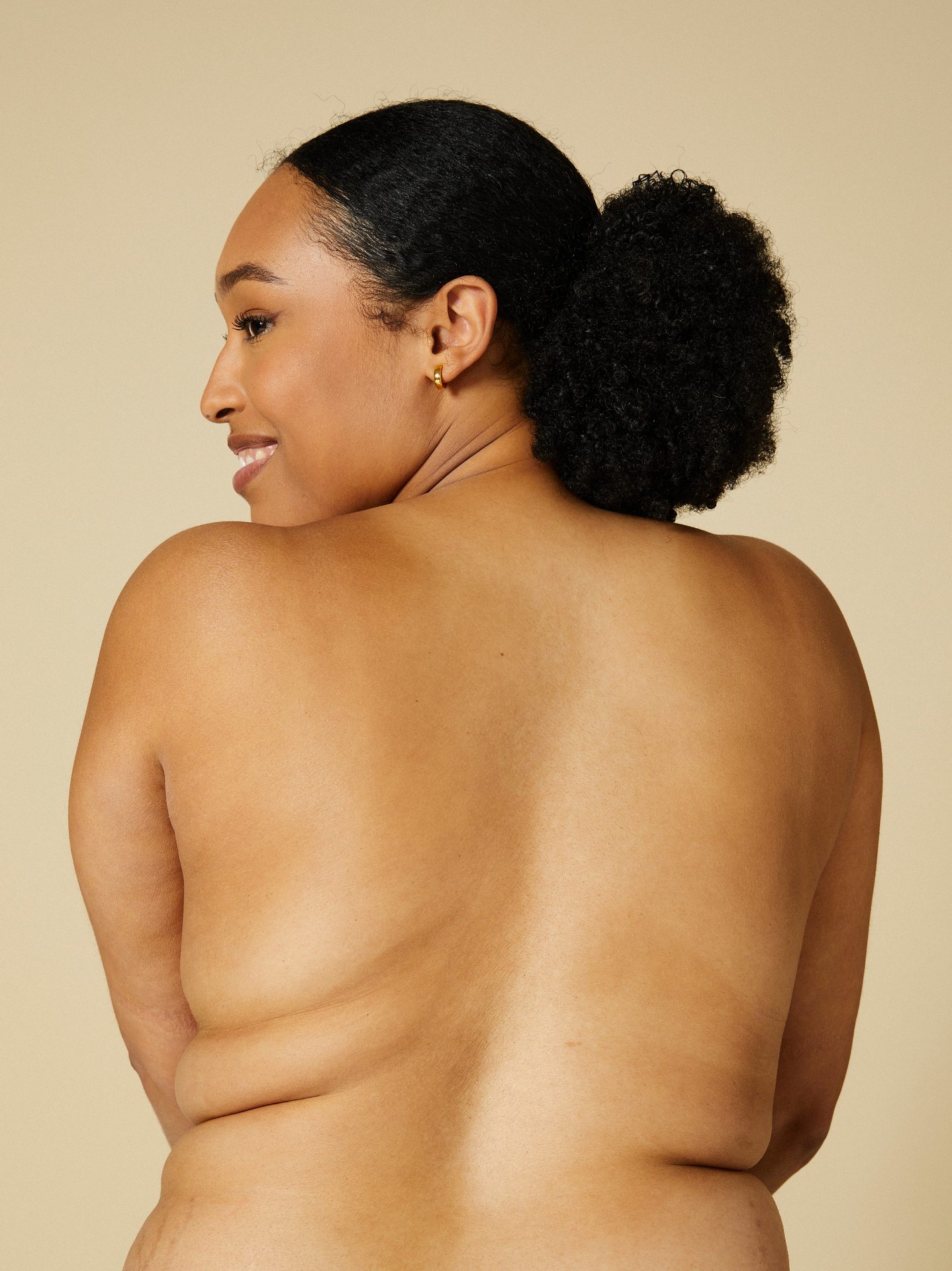
Meena Alexander, 28, Stylist’s features editor
“I hate how many times I’ve cried in changing rooms, under hideous strip lighting, over dress sizes that mean nothing and yet feel like they define me. It’s not who I want to be and it’s not who I tell the world I am, but this project has shown me there’s such power in being honest with each other.”
“I wish I didn’t judge women, but it’s hard to unlearn”
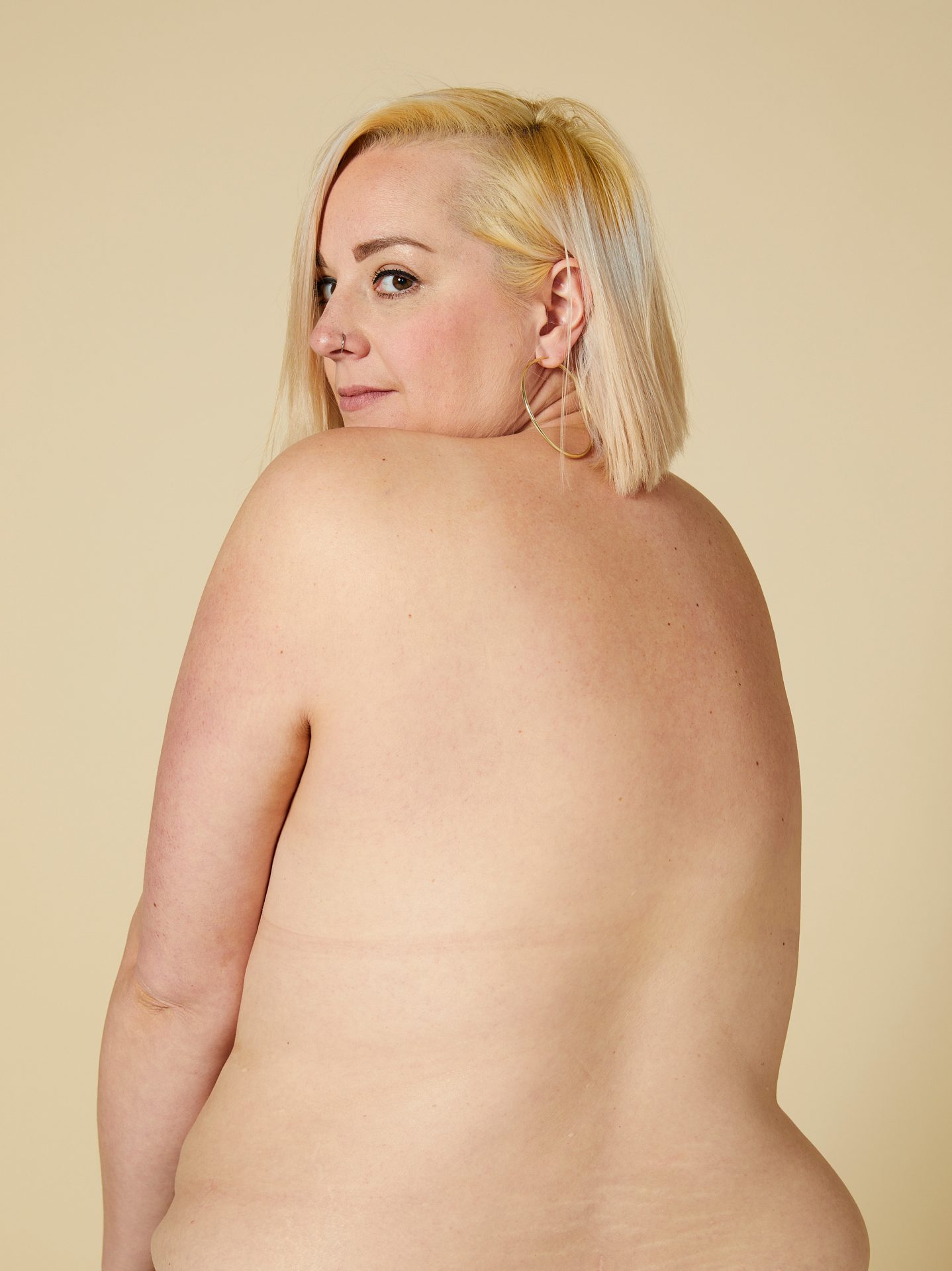
Rebecca Ellis, 38, entertainment relationship manager
“I’ve had to be honest with myself about judging other women’s bodies. I’ll see women out in, say, tiny shorts and no bra, maybe they have a bit of jiggle, and think, ‘Wow, you’re brave.’ But they’re not, they’re just living their lives. I love the fact a new generation is embracing their shape, but my neural pathway still goes to judgment.
I’ve grown up around thin friends who’d say things like, ‘I’m so fat, I feel disgusting.’ Meanwhile I’m eight stone heavier. Am I disgusting? I’ve had to set boundaries with what people say around me. Comments from my teenage years still echo in my mind. Parents of my friends saying ‘You can go out if Rebecca does, she’s big and she’ll protect you.’ PE teachers putting me up for the shotput. Those things are hard to forget and it’s a constant battle.”
“Most of our bodies have changed because of the pandemic”
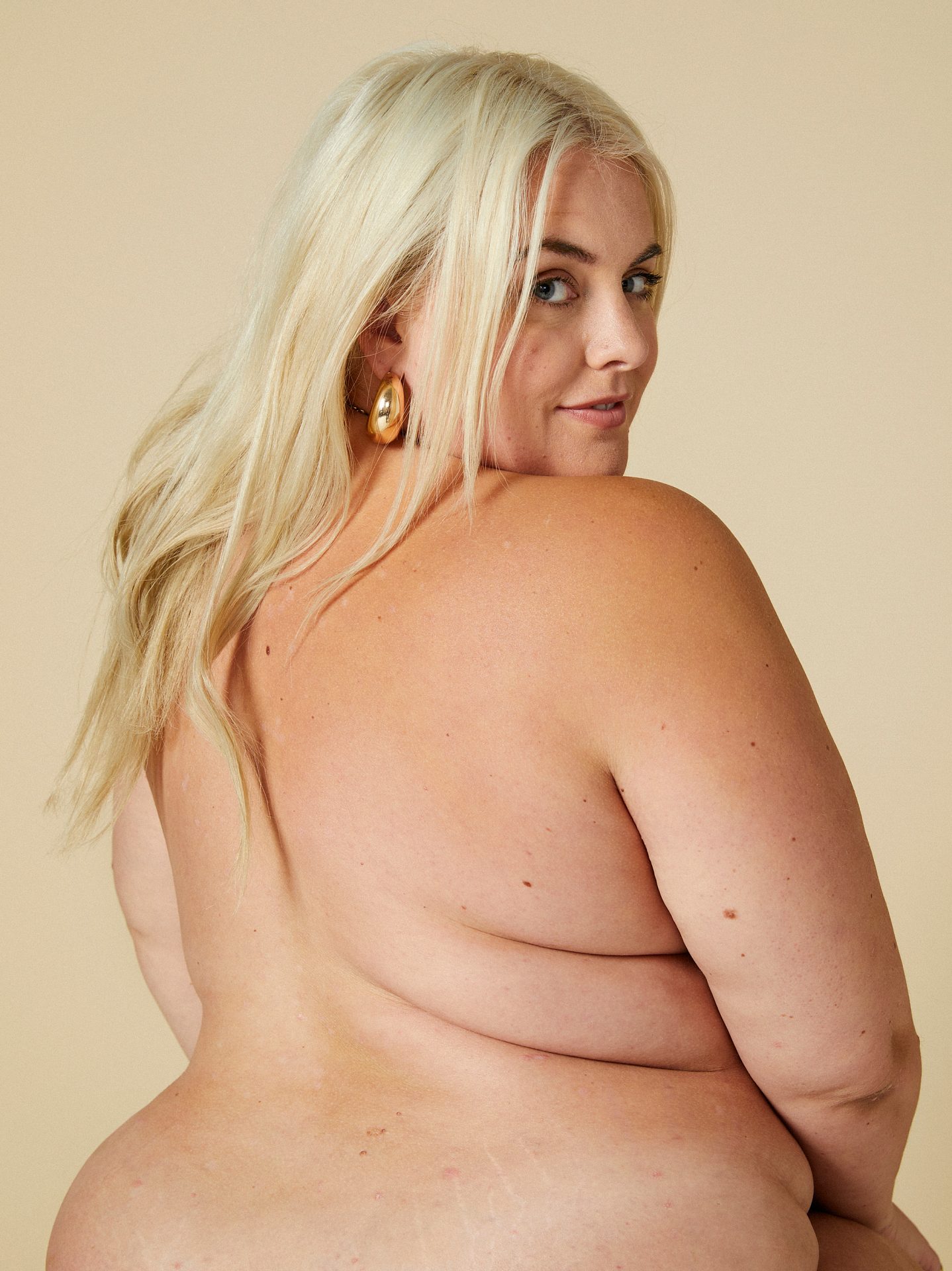
Felicity Hayward, 33, model and author of Does My Butt Look Big In This?
“Most people’s bodies have changed in the last two years because of the trauma of the pandemic. Now things are getting back to normal, people are starting to talk about how they’ve put all this weight on, but we have to remember that we were simply surviving.
It’s so strange; when you get ill you’re begging your body to look after you. Your body is your warrior. But when you’re healthy, you don’t treat it with the same respect. You criticise it because it doesn’t look like other people’s or it doesn’t fit the latest trends.
When I was growing up in the 90s, my body was not desirable. Then we saw a certain family who altered their bodies and created this trend of curves – now my body shape is popular and I have a career. But when the next trend comes, then what?”
“I threw away my scales, but now they’re back”
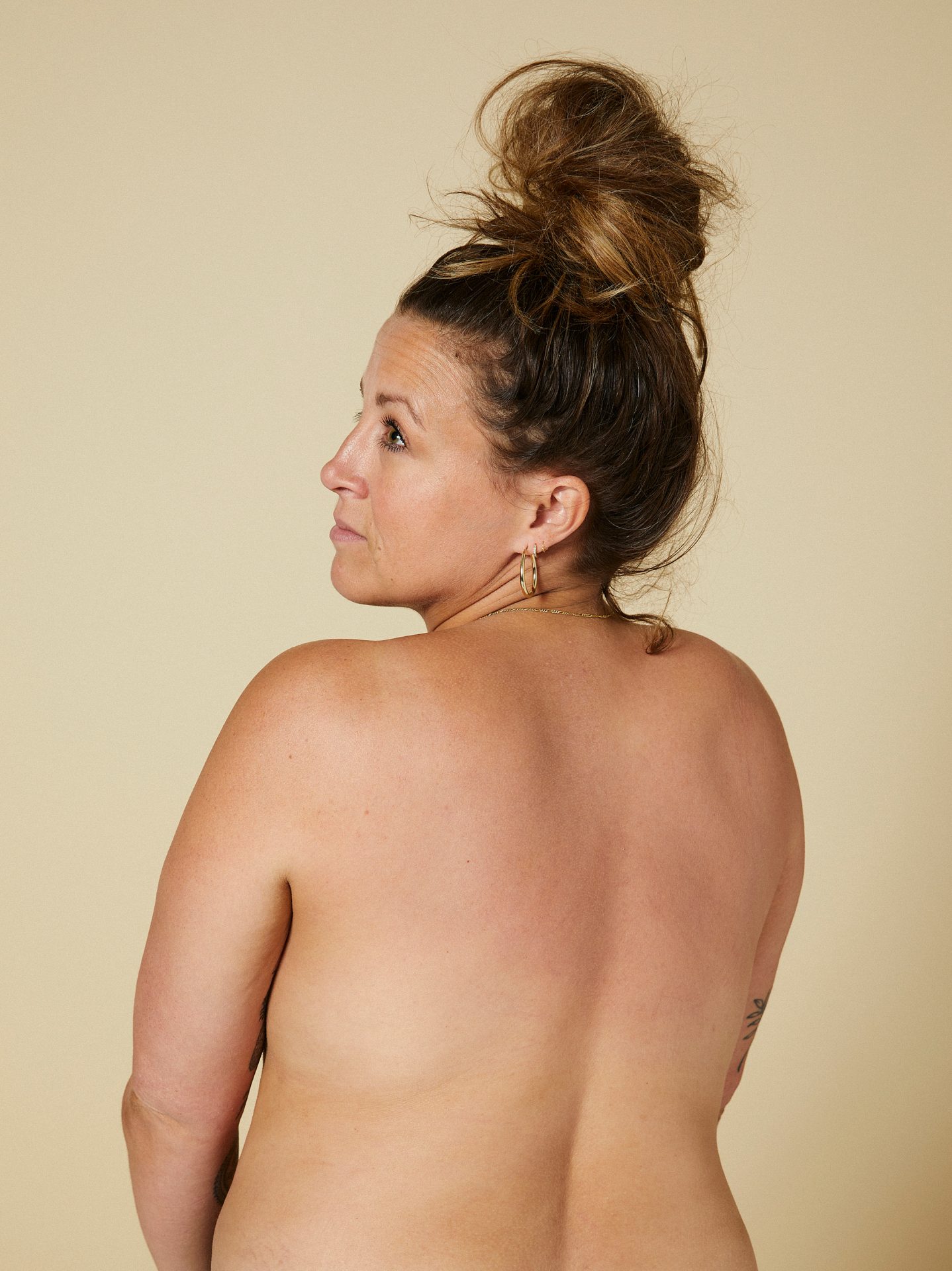
Clemmie Telford, 40, writer and podcaster
“Up until the age of 30, I weighed myself every day. I’d watched my mum diet her whole life, eating tiny portions, and 90% of women I knew did the same. It wasn’t until the birth of my daughter that I realised I didn’t want that cycle to continue – that was when I threw away my scales and leaned heavily into intuitive eating.
The plot twist is, now I’m back to weighing myself and measuring out my food. I’ve taken up weight-lifting, and to compete you need to enter certain weight categories. Stepping back on the scales the first time was triggering, because now I’m more muscular I weigh numbers that would’ve been my worst-case scenario. But it’s been healing to start thinking about my weight and food intake in terms of helping my body perform, not just trying to make it look a certain way.”
“I feel so much healthier as a size 18 than I did as a size 8”

Shareefa J, 30, model and presenter
“Even after 10 years working as an ambassador for self-acceptance and a plus-size model, I can’t look at my weight on the scales. Training for a bike ride recently, I needed to weigh myself before and after each session to calculate my sweat rate, which would then tell me how many electrolytes I needed to carry with me to stay hydrated on the ride. I knew it was purely a performance thing, but I had to ask my sister to look at the scales for me, because I know seeing those numbers will make me feel like there’s some worth attached to them. The idea that it’s a measuring stick for my attractiveness could still creep into my mind.
I’m a size 18. I’m 170cm tall. I’m a big person who can’t fit into conventional clothing, and I’m also very athletic. I just did a 100-mile bike ride, I ran the London Marathon, I’ve done a super sprint triathlon. I’m so much healthier than I was when I was a size 8, but in the society we live in I’m constantly having to prove and justify that to everyone, including myself.”
“People feel they can comment on my body wherever I go”
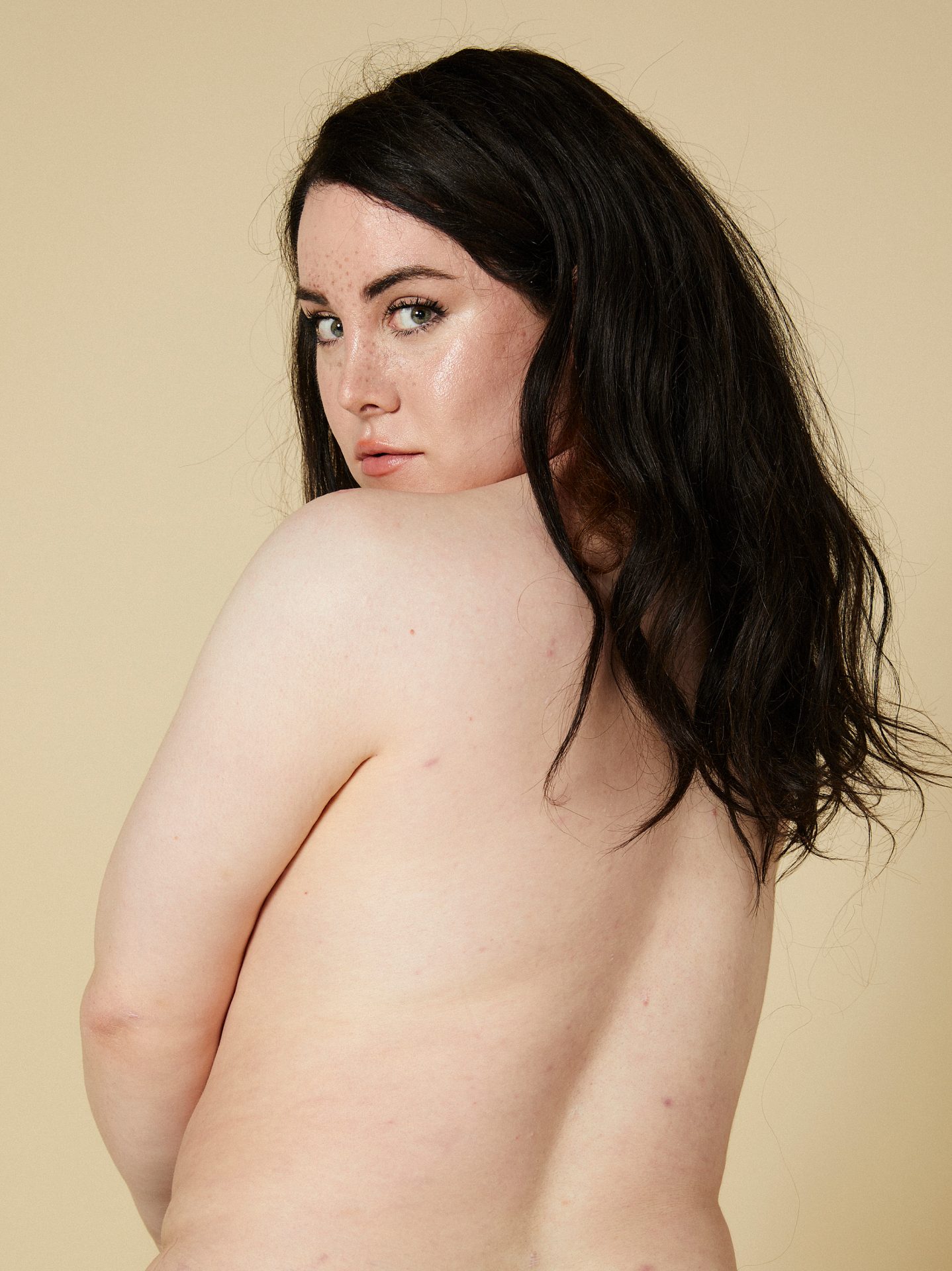
Charlie Craggs, 28, activist, author and presenter
“Mine is not a Cinderella story, but I’ve come a long way. Ten years ago, before my transition, I had to cover every reflective surface and sit in darkness; my dysmorphia and dysphoria was so bad my reflection made me physically sick. It’s been a long road since then, I’m a proud, visible trans woman, but I still struggle with the myth of what a woman’s body should look like. People feel they can comment on my body – the size of my arms, the paleness of my skin – and for a long time I tried to shrink and change. But recently I thought, fuck that. If they don’t respect me, why would I give their opinions any credibility? This is my final form, and I love her.”
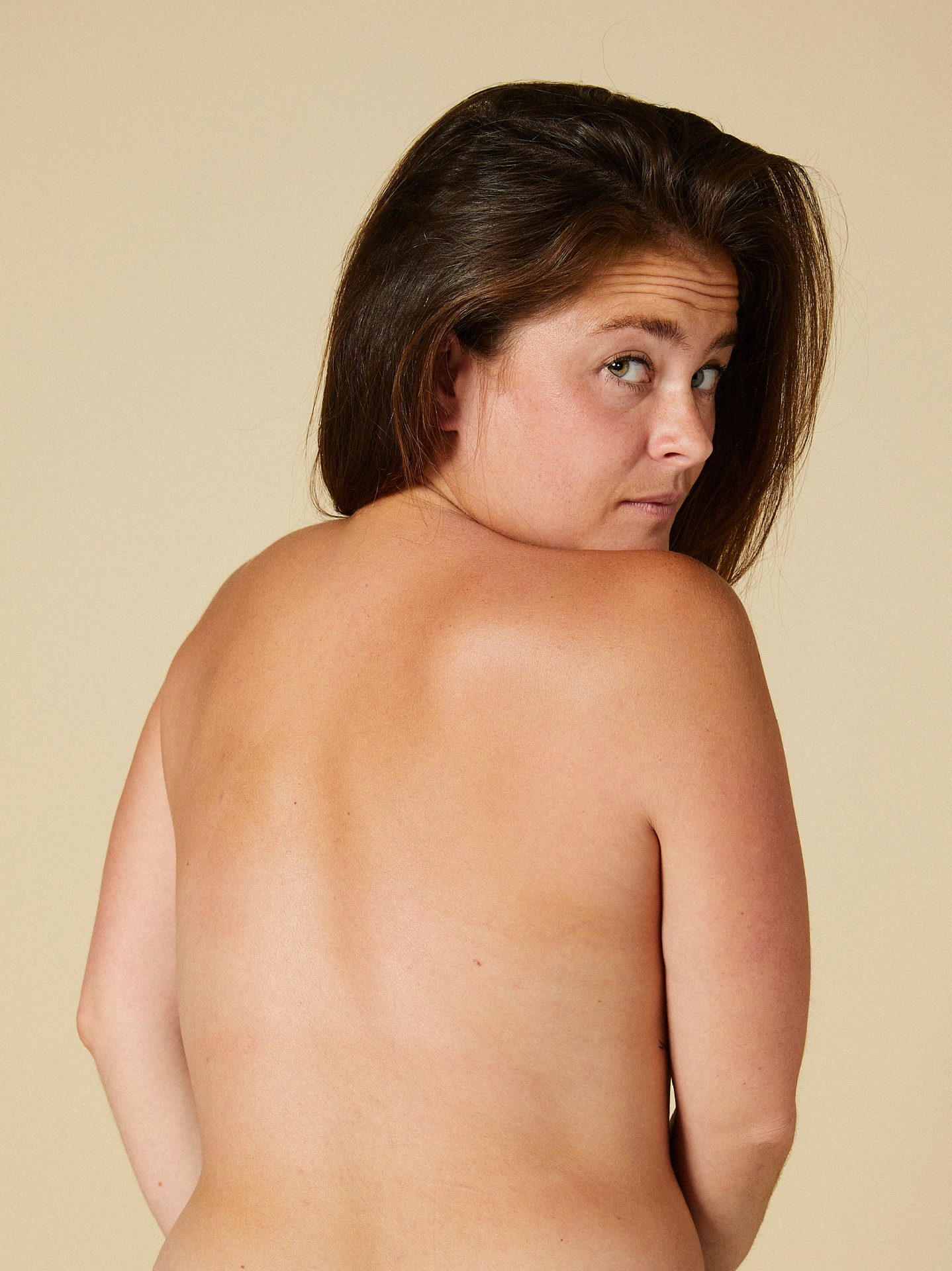
Amy Bennett, 29, trainee manager
“I booked a holiday a few days ago and found myself thinking, ‘I probably shouldn’t eat much until I go away.’ Then I thought, ‘Imagine the things I could do if my head wasn’t full of this shit?’ It galls me.”
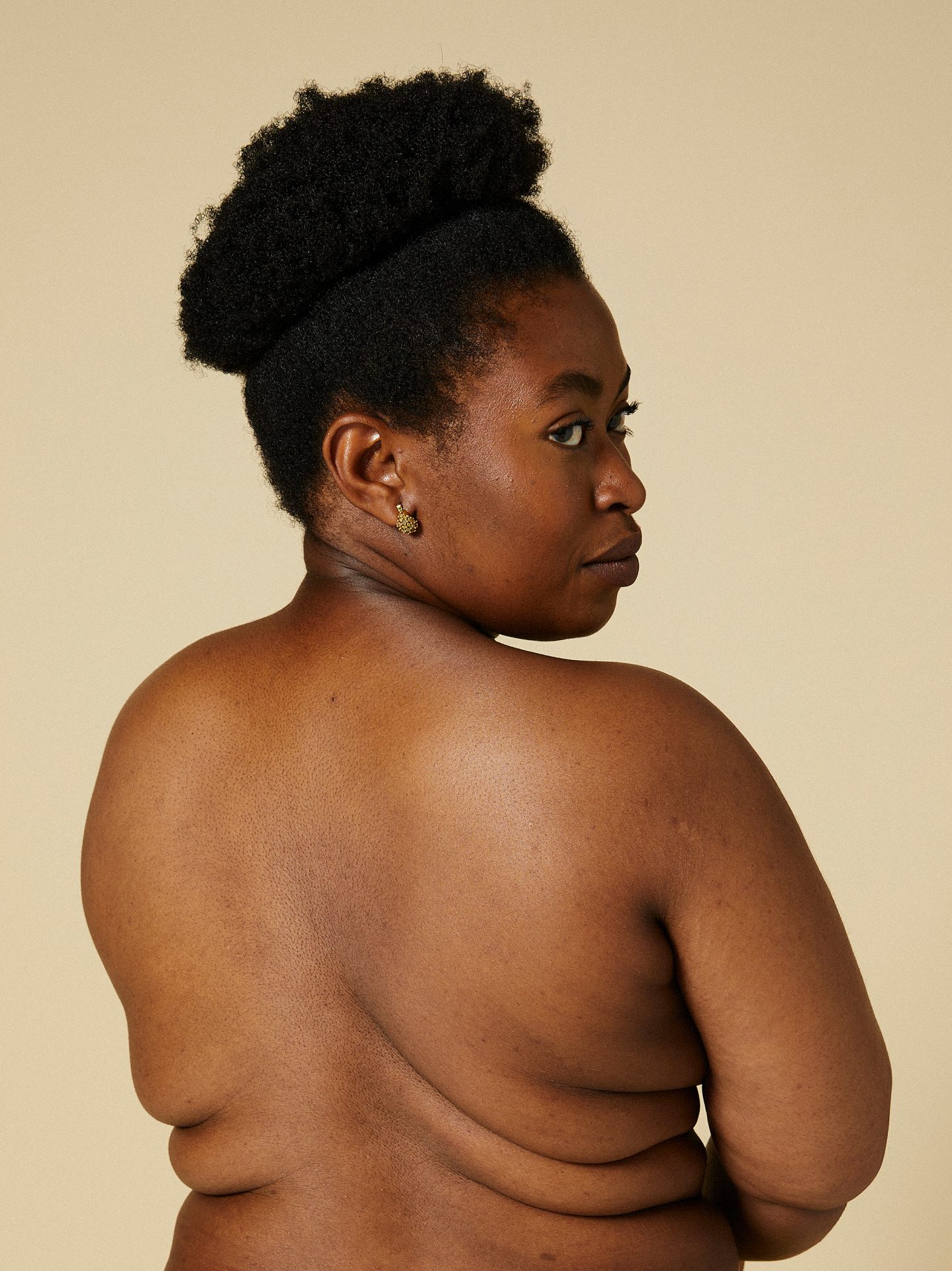
Selorm Mensah, 26, start-up intern
“Therapy and an incredibly supportive boyfriend have helped me deal with years of struggling to fit into a Eurocentric standard of slimness. It’s been a real self-discovery journey. If not body positivity, I now feel I have body neutrality.”
“I equated being skinny with having it all”
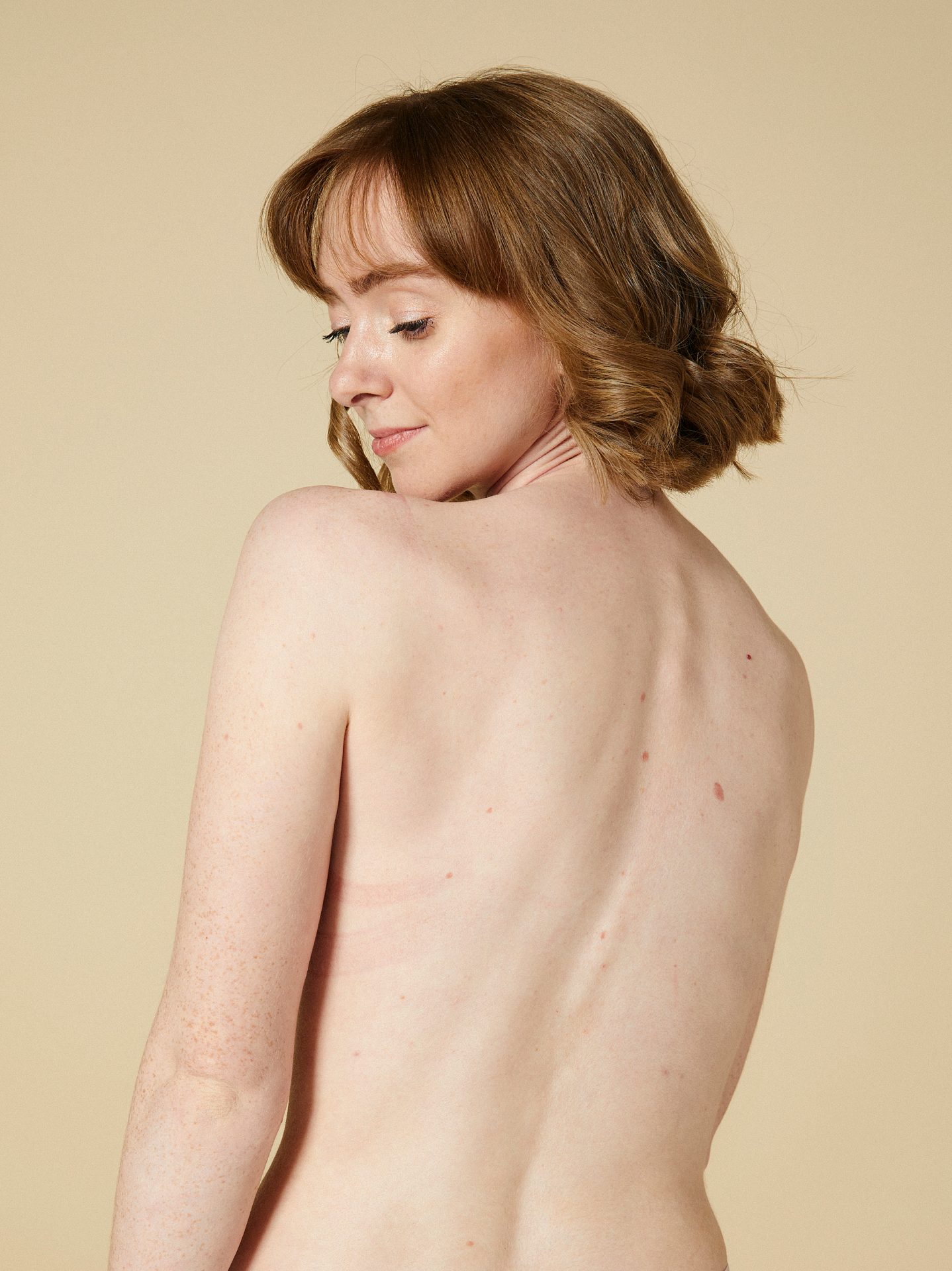
Billie Anderson, 25, PR
“I used to equate being skinny with having worth – if I could be those things, people would like me. I would run at 6am every day, massively restrict my eating and then go out and get trashed at night.
Then I started to experience bizarre bowel habits, and lose weight quickly. Aged 20, I weighed five stone. I was diagnosed with inflammatory bowel disease, and doctors said I wouldn’t survive unless my large intestine was removed. For months I had to have protein drinks to bulk me up.
It is wild that I had to lose a major organ to feel my happiest. When I put on weight again it was a huge relief. I feel lucky I get to enjoy food, that I get to go on holiday and strut around in a bikini. I feel lucky I’m alive.”
“I deal with online trolls and verbal abuse in the streets every day”
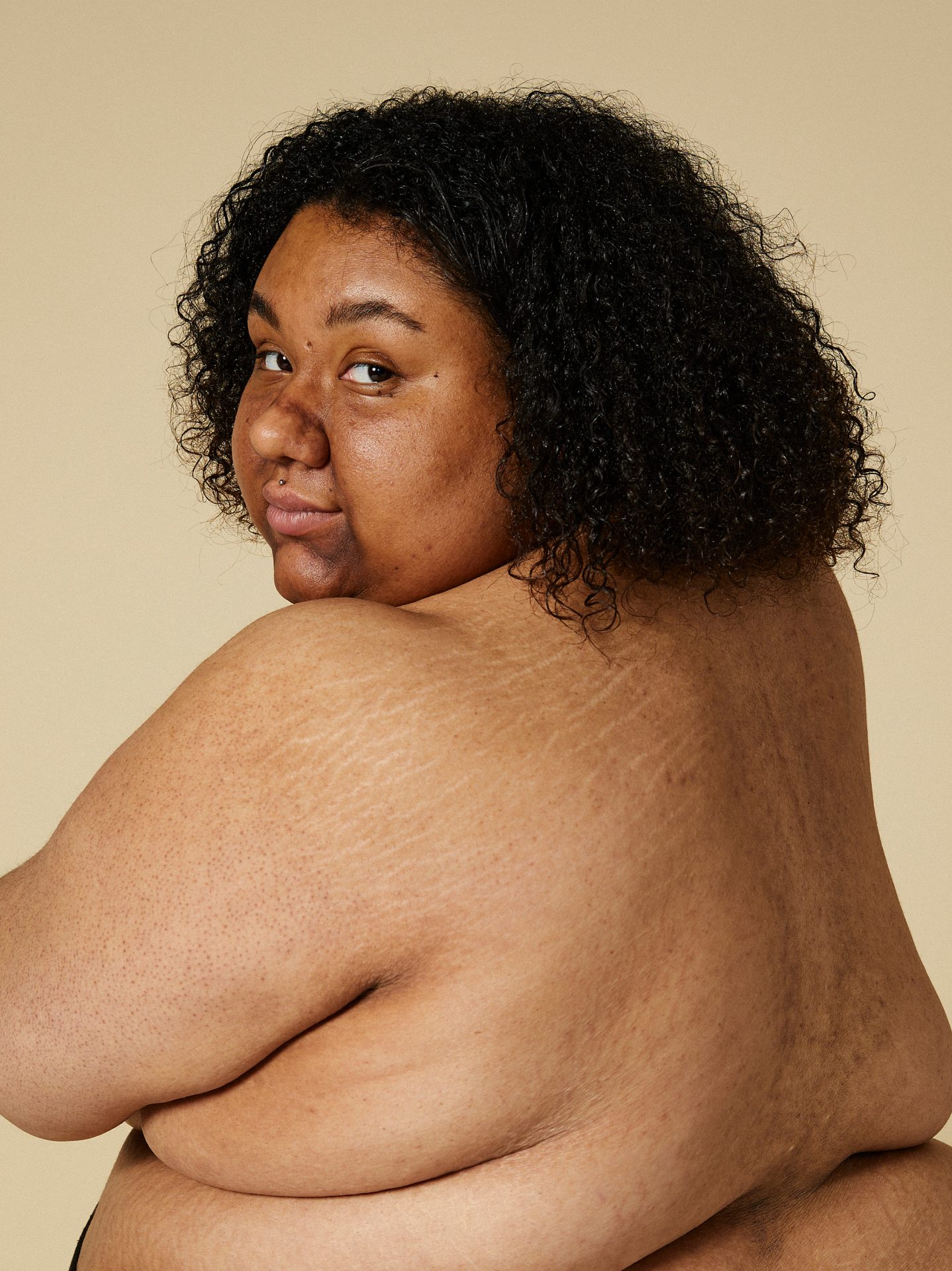
Miah Carter, 19, video creator
“I’m due to get weight loss surgery for my health, as I suffer with PCOS. When I posted about it online, a lot of my followers commented saying, “You’re betraying us, you’re not going to be one of us.” But I respect my body as it is, I don’t care what size I am, I just want to be healthier.
I deal with trolls every day: I get told to kill myself; I’ve been verbally abused in the streets and called an elephant, had stuff thrown at me. I try my hardest to block it out, but what some people don’t understand is I’m a human being, not a robot. Posting on social media has helped in lots of ways though – it’s made me realise I don’t need to look like everyone else, there’s space for me. And I know I’ve helped and inspired others.”
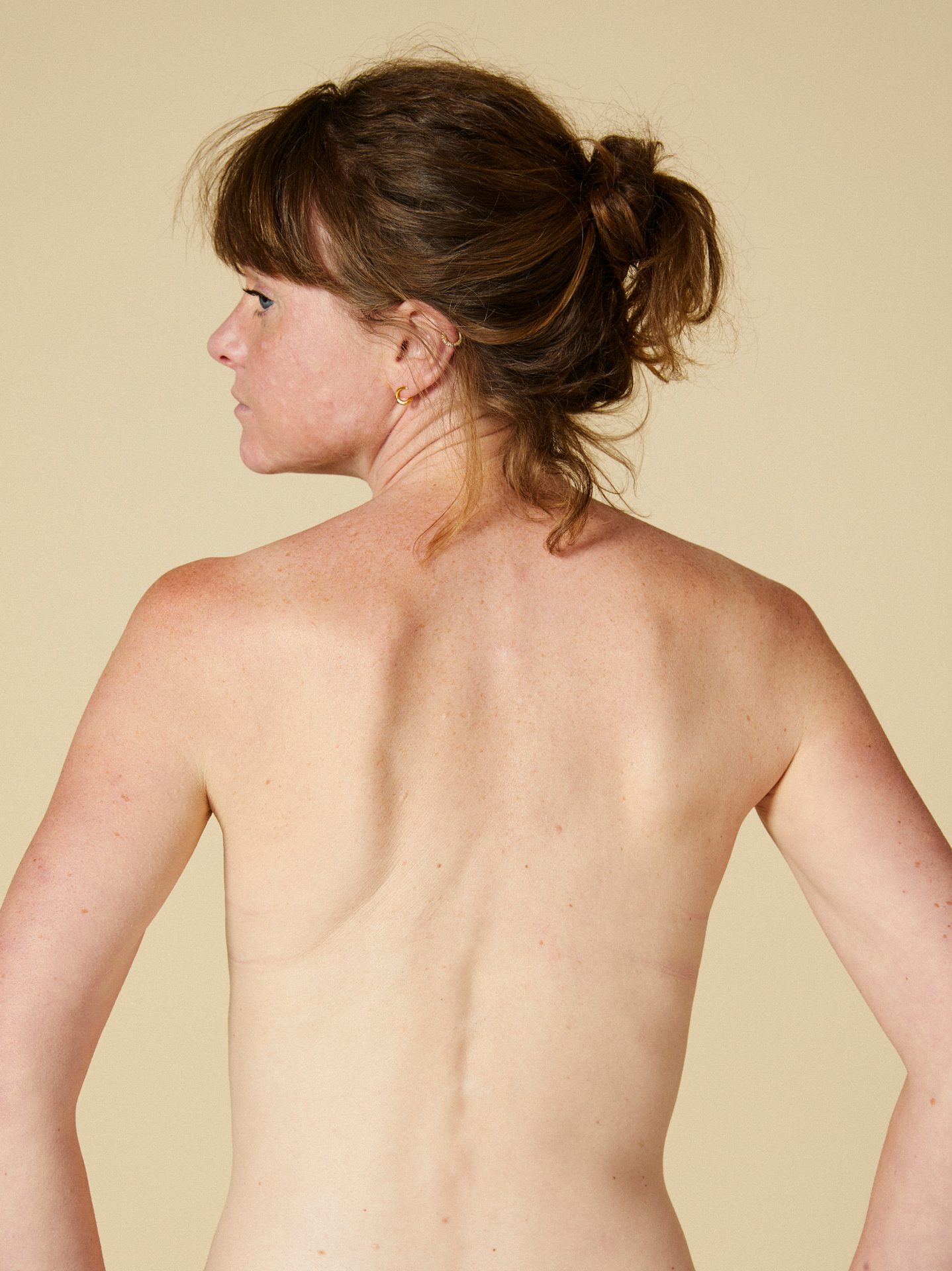
Clare Finney, 33, food writer
“The most common question I get asked is, ‘How are you a food writer and yet so thin?’ I still haven’t come up with a satisfactory answer, and usually end up apologising – ideally I’d tell whoever is asking the question to sod off.”
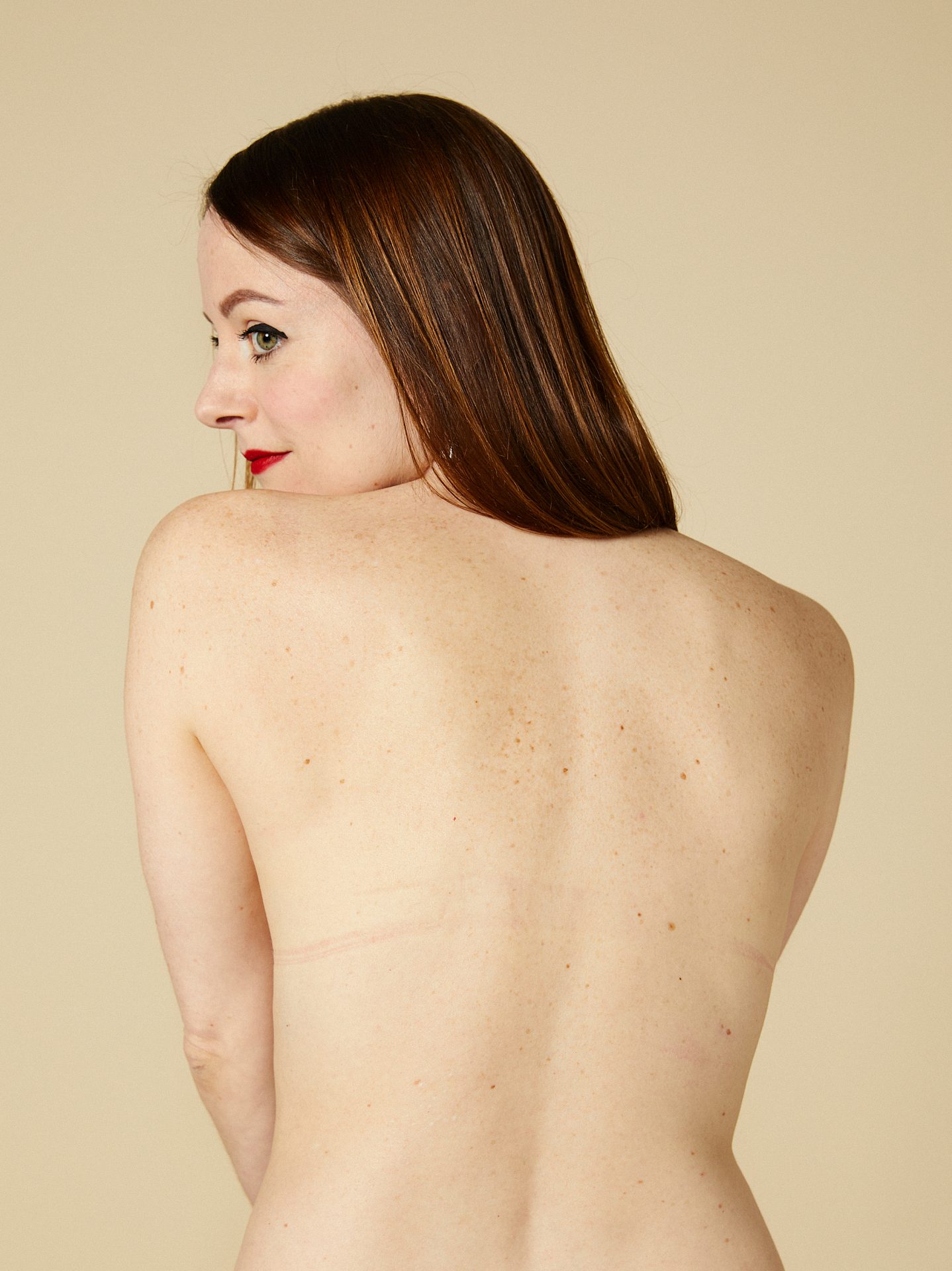
Laura Price, 39, author of Single Bald Female
“Surviving breast cancer has given me a newfound love and respect for my body. I put on weight due to the steroids I was taking as part of my treatment; my body did what it had to do and it hasn’t let me down since.”
“Powerlifting shows up diet culture for the lie that it is”
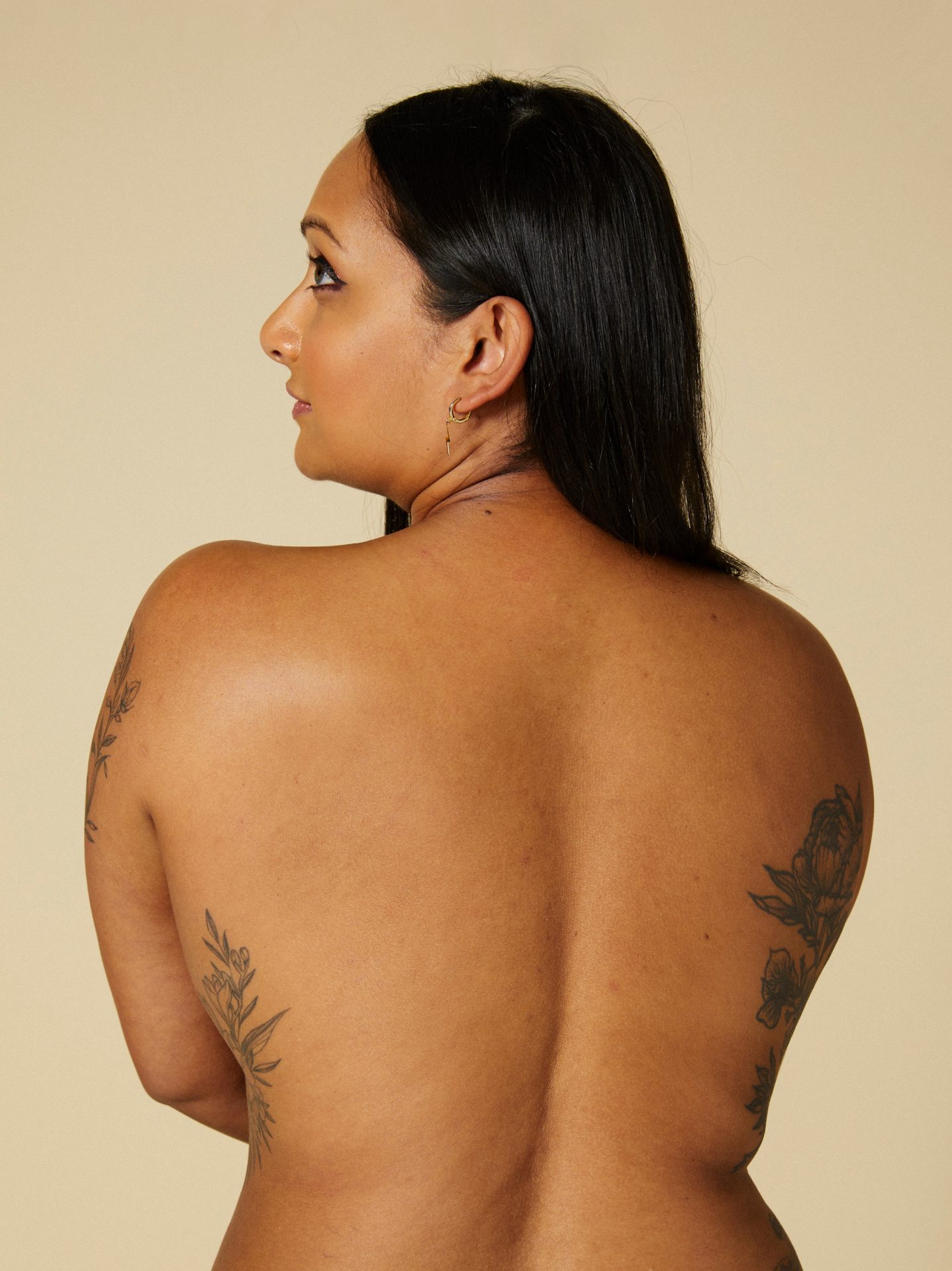
Poorna Bell, 41, journalist and author of Stronger
“For a long time, I believed I had to keep myself as slim as possible. That changed when I took up powerlifting, a competitive sport where you lift the heaviest weights you possibly can. Before then, I was still held back by societal norms and was paranoid that I would get big and muscly if I was lifting. I look back now and am deeply embarrassed at this, because not only is it internalised fatphobia, it’s also anti-feminist. Men don’t have the monopoly on muscle.
Diet culture tries to trick your body into subsisting on as little food as possible and powerlifting shows it up for the lie it is. When I realised that what I put in my body and how I look after it directly impacts my performance in the sport I love, everything changed. Was it more important I fit into a particular dress or held on to an arbitrary notion of smallness? No. Was it important I did everything I could to be as strong and fit as possible? Yes. It wasn’t an easy or a quick journey, but it liberated me and made me feel neutral and comfortable in my own body.
Looking back, I wish that I had interrogated societal expectations around body size and also femininity. Why did I think it was OK to believe that physical strength and muscle was more acceptable for men than women? I also wish I’d known that diet culture is designed to make you feel permanently unhappy in your own body, because there is an entire commercial machine that benefits from it. And that never, not once, did I ever feel like I attained self-acceptance, even when I did everything it asked me to.”
“My body isn’t a problem to be fixed, it’s no one else’s business”
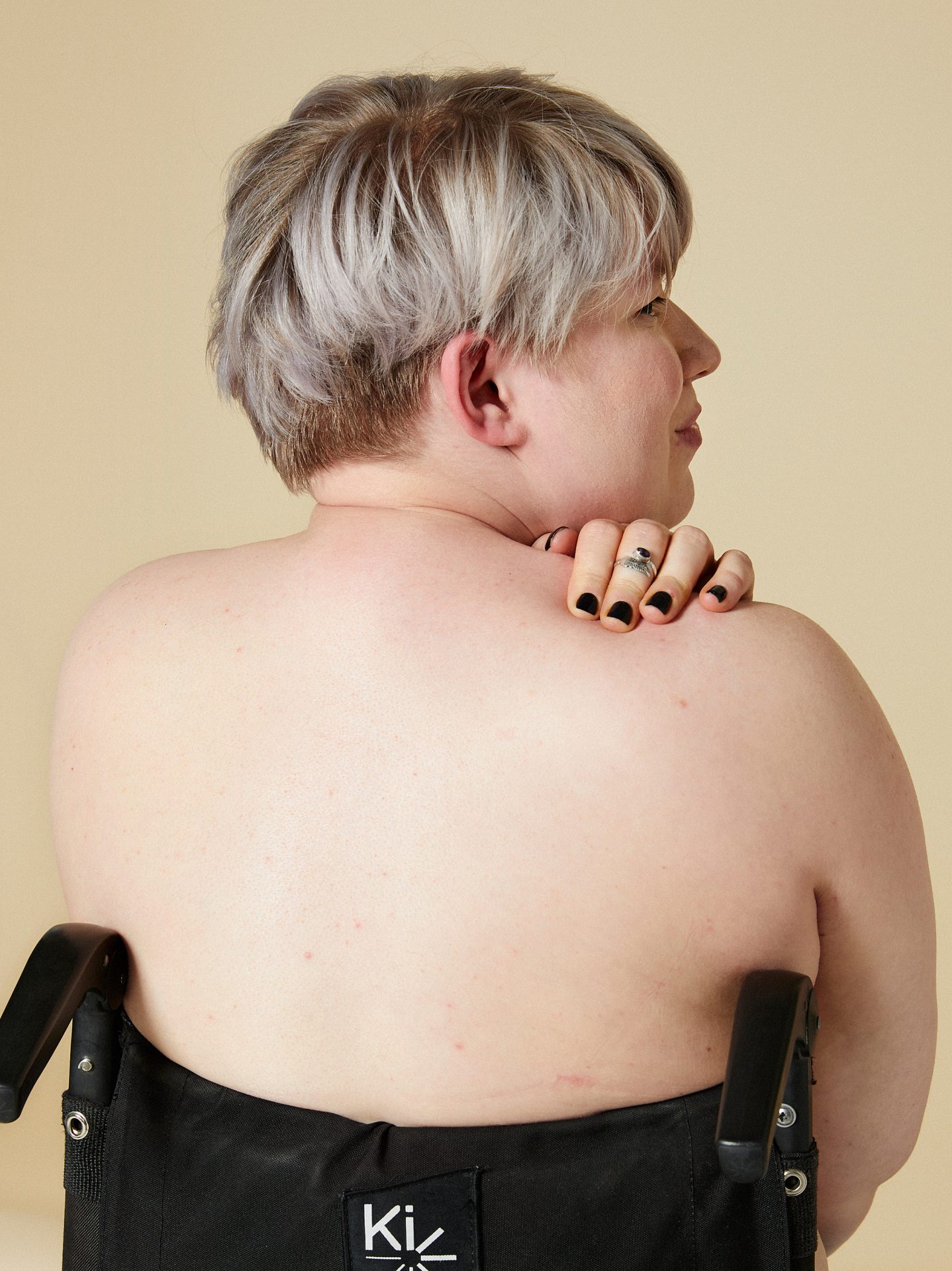
Melissa Parker, 30, journalist
“Being a disabled woman means constantly fielding problematic assumptions and inappropriate comments about my body – just to give you an idea, someone came up to me
in Sainsbury’s the other day and asked if I could have sex with them. People are also constantly talking at me about what a healthy body ‘should’ look like: because they think they have my best interests at heart, people will suggest I lose weight, that I put on weight, that I try this exercise or eat that kind of meal. But my body isn’t a problem to be fixed. I wish people could understand that.”
“I want to raise a son who respects real women’s bodies”
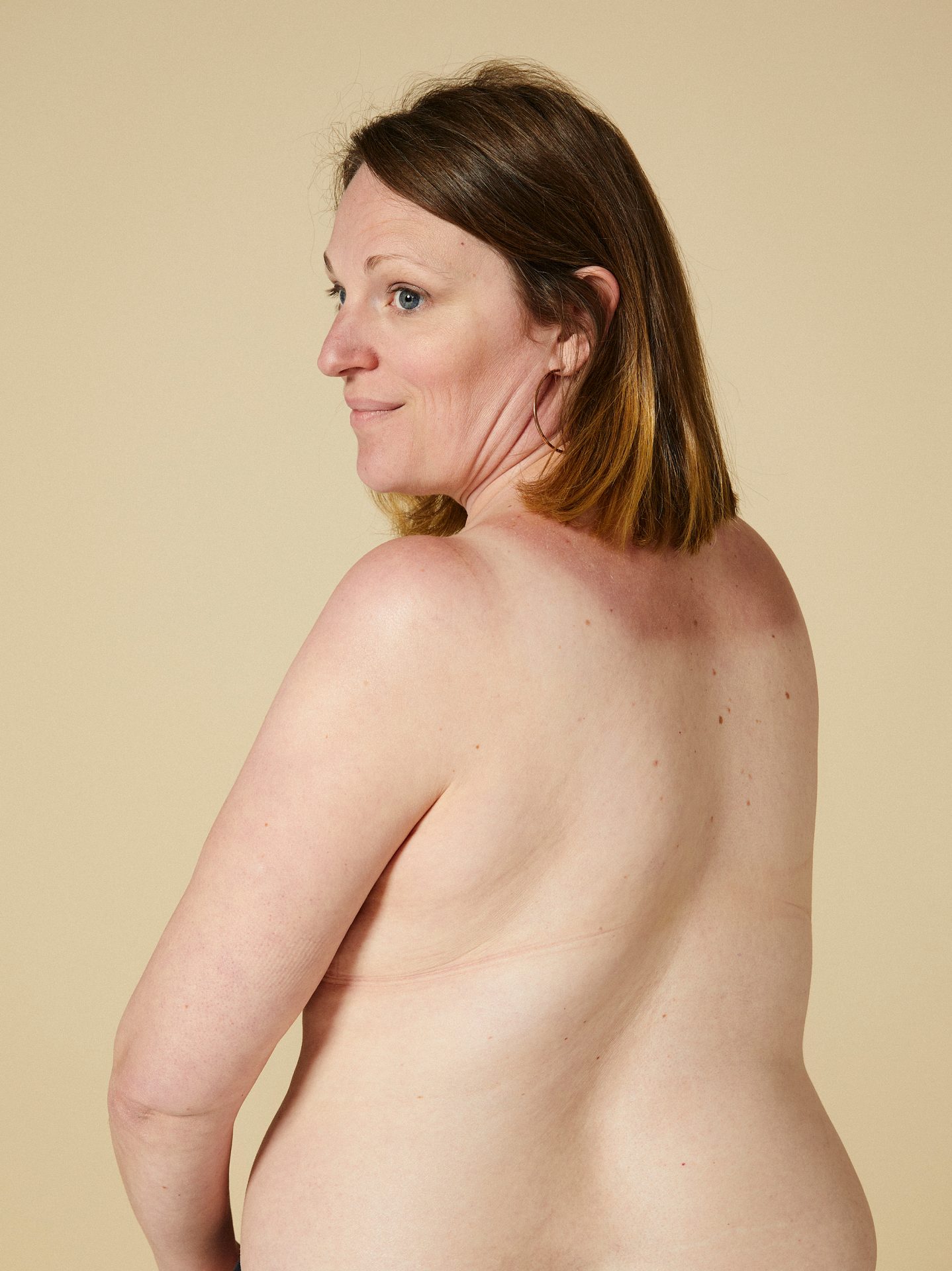
Fiona Barker, 42
“After I gave birth to my son, I naturally put on some weight. When he was a few months old, I found a sex doll my husband had stashed away in our house. When I confronted him about it, his answer was, “Well, I just don’t find you very attractive when you’re big.” It was a huge blow, especially when you’re vulnerable and sleep-deprived. I thought, ‘Wow, this body has given you two children and it still isn’t good enough.’ It took a lot of working through, but ultimately it said more about him than it did about me. It made me all the more determined to raise a son who grows up into a man who understands – and most importantly respects – real women’s bodies.”
“After anorexia I began working in body image research”
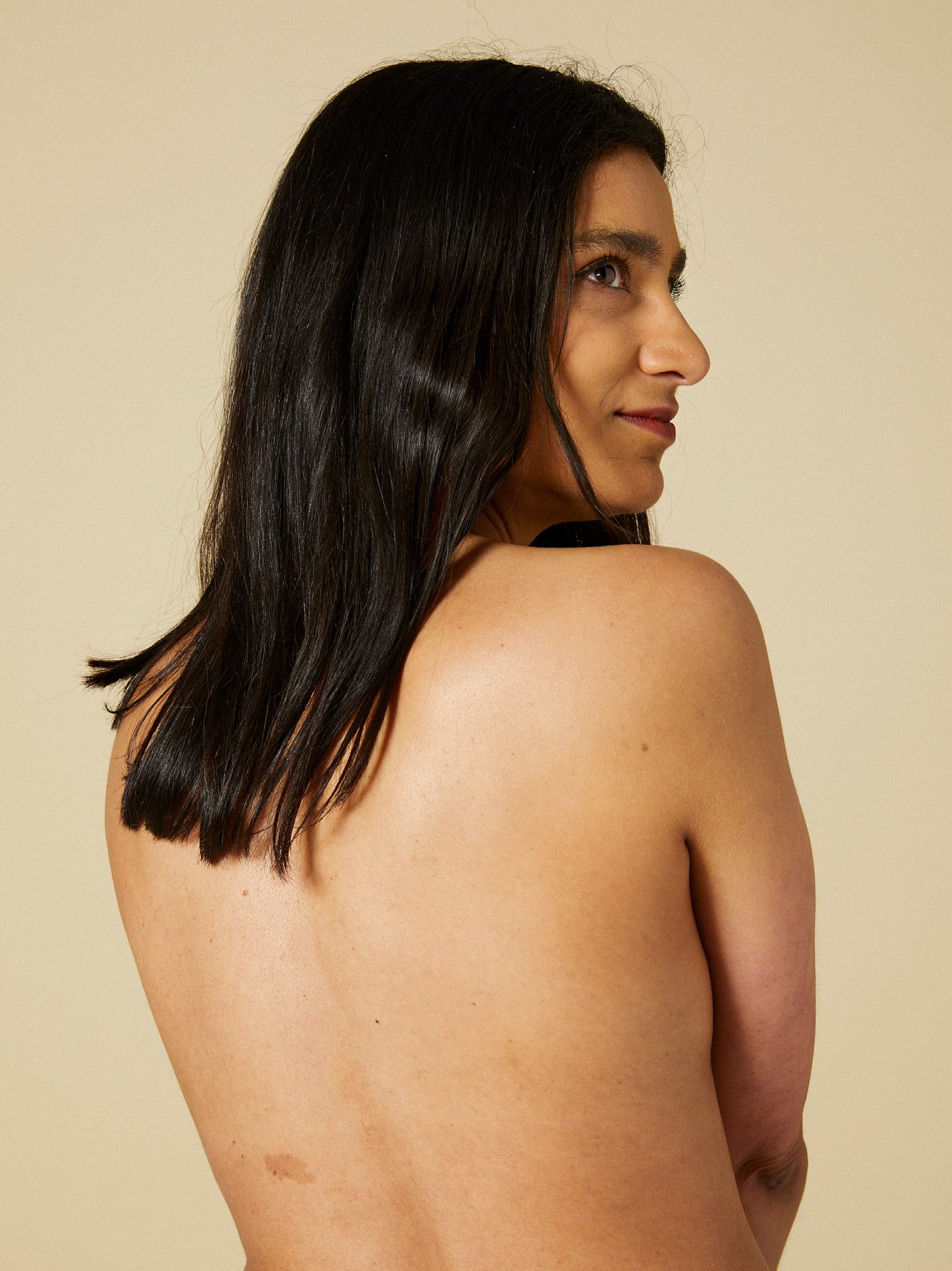
Dr Nadia Craddock, 36, body image researcher
“I struggled with anorexia for most of my teens and 20s and spent a lot of time in hospital. It was a vicious, self-destructive illness and, although I recovered before I started my career as a body image researcher, my experience definitely influenced my decision to go into this field. I still have poor body image days, and it can be hard to reconcile feeling bad about my body with the work I do. But I’ve learnt to be more compassionate with myself.”
“I suck my tummy in when I meet people – it’s muscle memory”
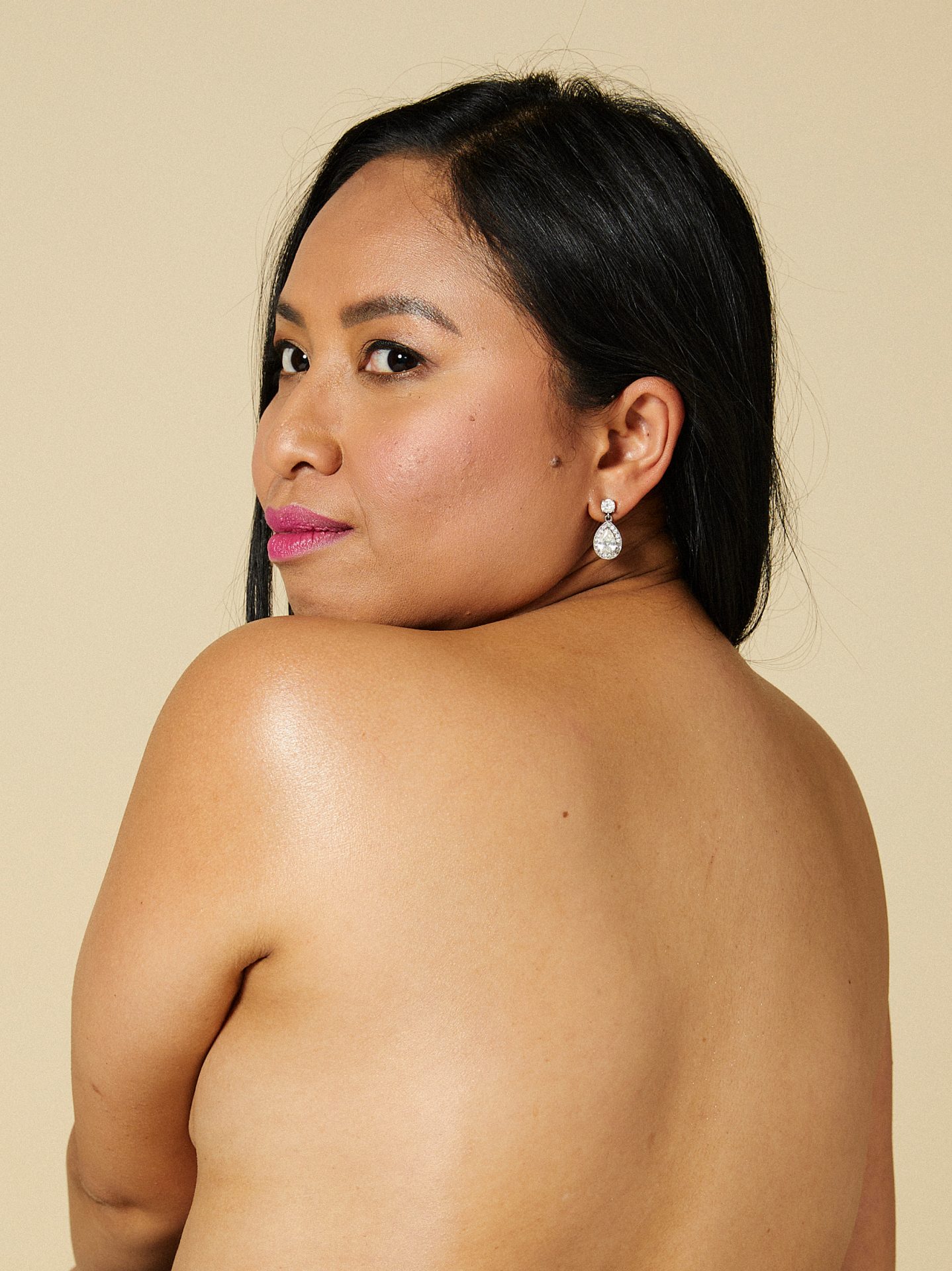
Rebecca Leppard, 39, public speaker
“I think it’s important to be honest, so here it is: I want to get a tummy tuck. This is nothing new. There’s video footage of me, during a C-section when my first child was born, asking the doctor to ‘slice off some of my fat while you’re down there’. I suck my tummy in when I meet new people – it’s muscle memory. I’m naturally a very confident person. I’m surrounded by body positive people. And yet when I drop my kids off at school all I see is the other mums who have flat stomachs.”
“The weight loss agenda has become covert, but it’s still there”
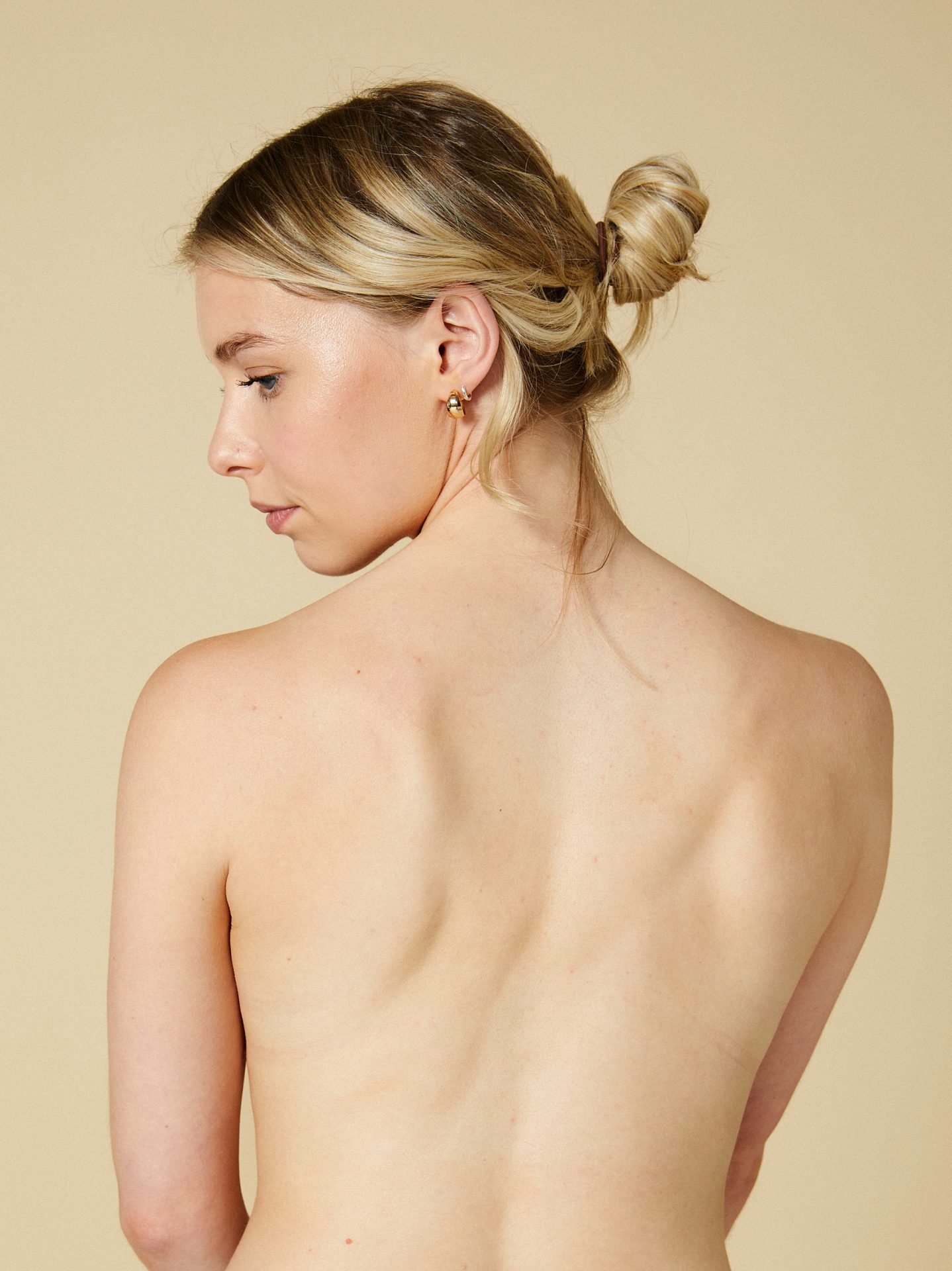
Chloe Gray, 25, Stylist’s senior fitness writer
“I have a love-hate relationship with working in the fitness landscape, because I notice the traps of diet culture everywhere. So many of the workout challenges that are sugar coated in feminist empowerment are still, ultimately, about losing weight and chasing a narrow body ideal. Protein goals have replaced calorie counting, but the fixation is still on the perfect nutritious plate. The pressure to grow muscle and lose fat is virtually impossible to achieve at the same time. It’s all there, just more insidious.”
“The idea that girls should be small and delicate remains”
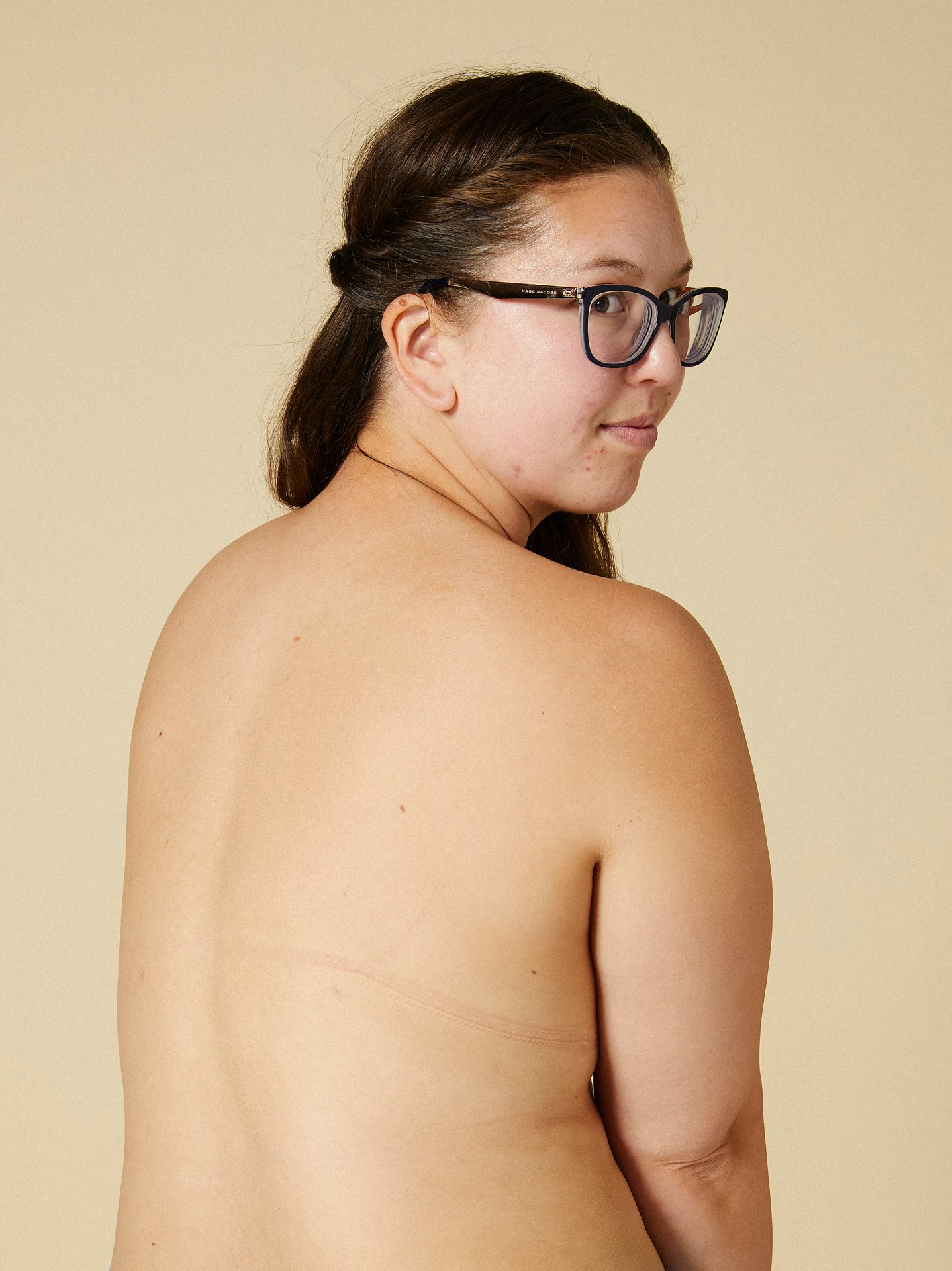
Cam-Tu Tomkins, 34, supply teacher
“It’s scary to see the cycle continue in the kids I teach: weird challenges where they try to fit their fingers around their wrist as a badge of honour, or fit their whole body through the arms of their boyfriends. The idea that girls should be small and delicate is still strong, but I do see flickers of change. I had a Year 11 class look through glossy magazines, and they all said, ‘Yes, these images are beautiful, but they’re obviously all photoshopped.’ They’re more aware than we were.”
To read every single story, go to stylist.co.uk/100women
If you have been affected by anything you read in this article, please visit beateatingdisorders.org.uk or mind.org.uk for support and information
Images by Sarah Brick. Compiled by Meena Alexander.
Source: Read Full Article